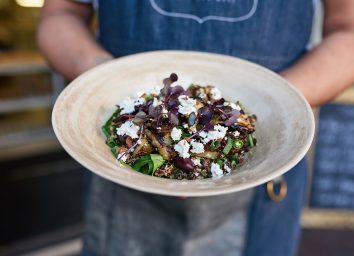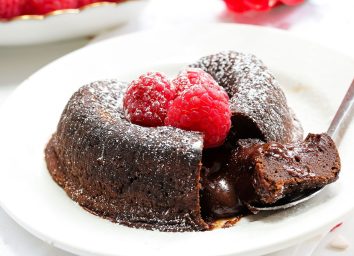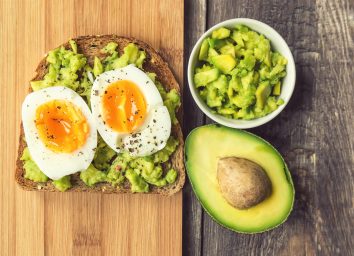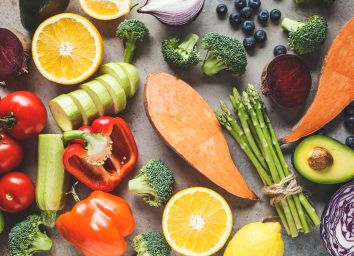40 Healthiest Foods That Doctors Always Eat
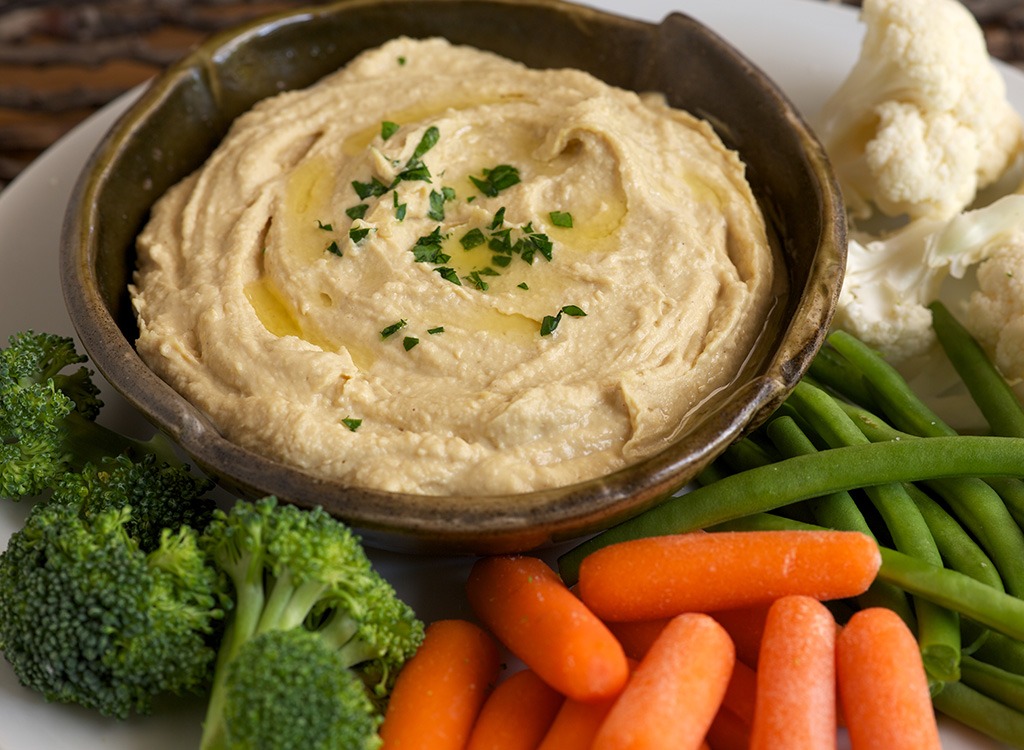
Given their years of medical training, you'd think doctors would know exactly what to eat for a happier, healthier life. And while most doctors don't necessarily learn how food works on the body—as they learn how to fix the body when you eat the wrong foods—we found the ones that do know what's best.
Here, these doctors and their researchers rounded up this comprehensive list of the 40 best foods these doctors always eat. Essentially, if they invited you over for a meal, here's what you might find on their plate. Read on, and to get the body you've always wanted!
Eggs
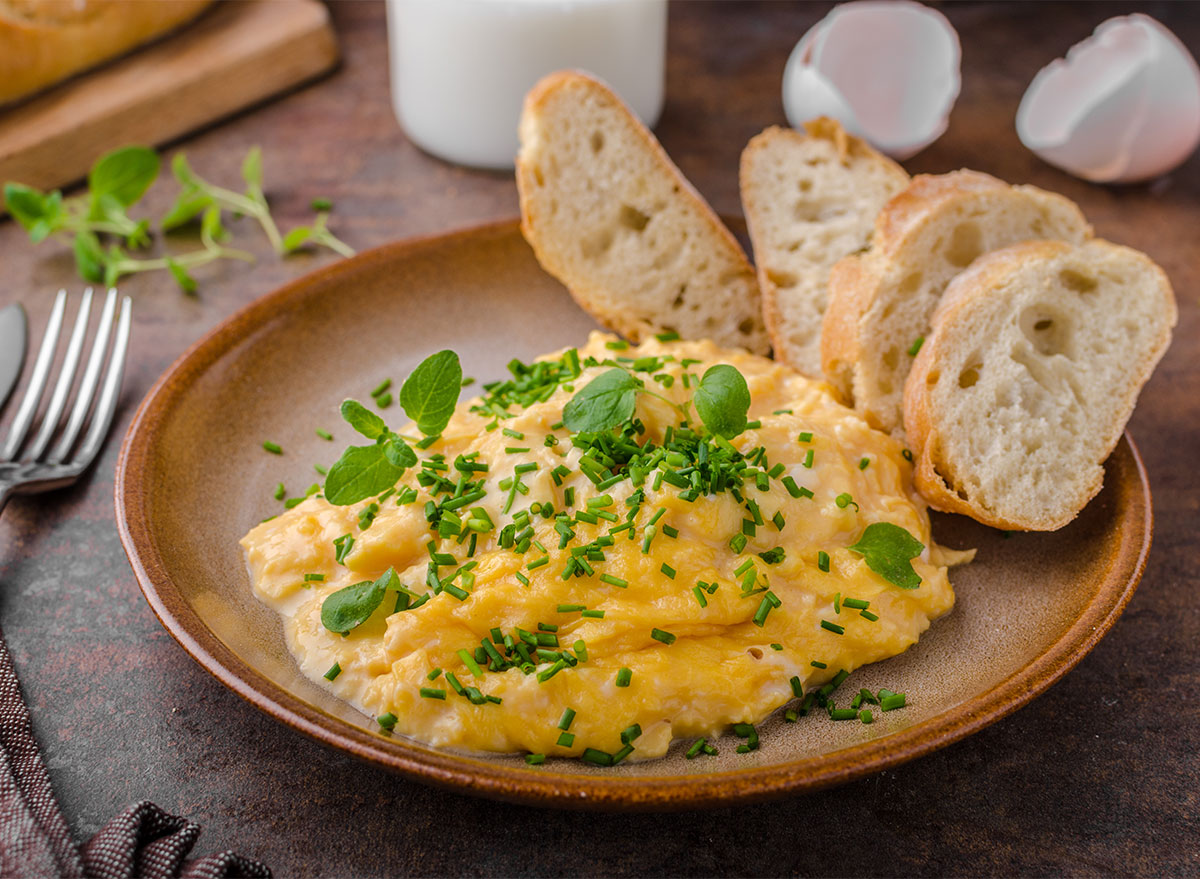
"I consider myself 'pseudo vegetarian' or 'flexitarian' which means that I mainly eat plant based foods," says Rachel Goldman, Ph.D., FTOS, Licensed Psychologist and Clinical Assistant Professor, Department of Psychiatry NYU School of Medicine. But she also eats animal by-products. One of her go-to protein sources: Eggs.
Tofu
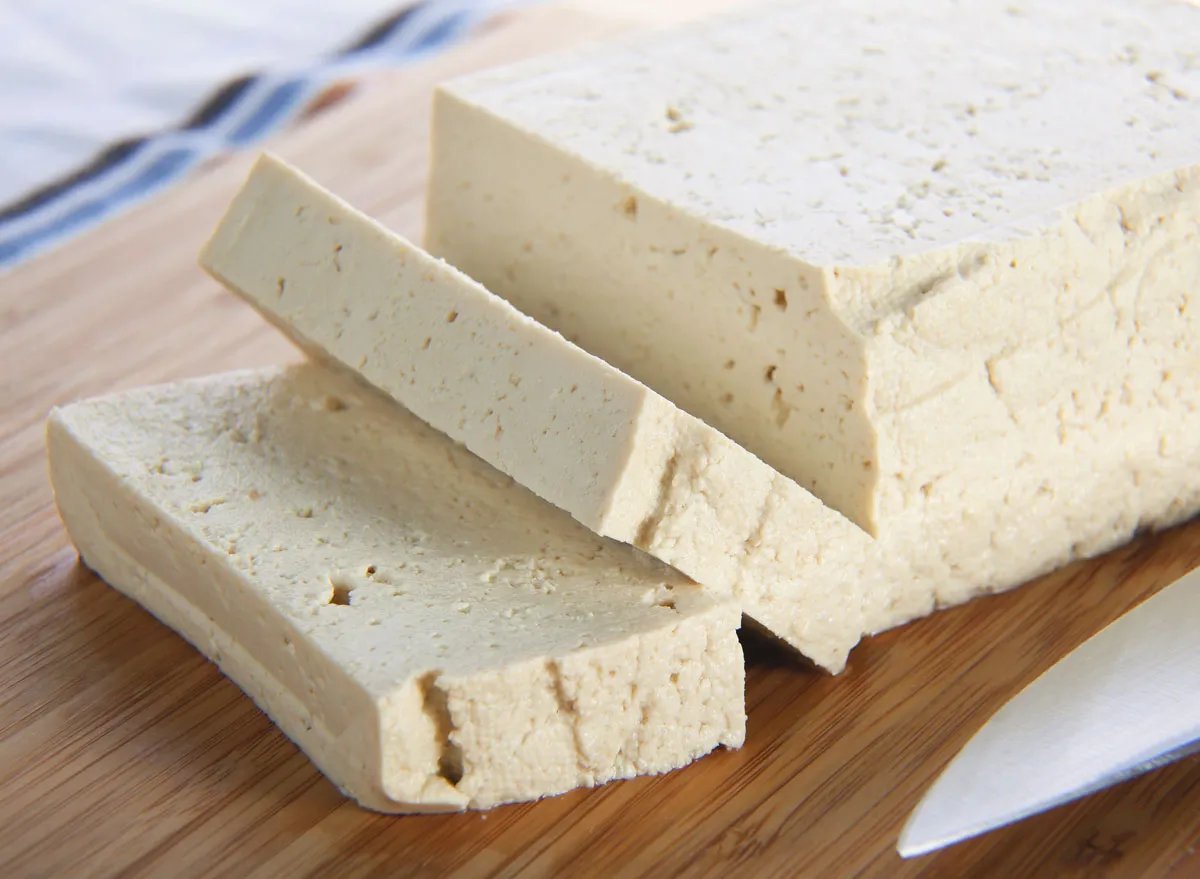
While Dr. Goldman will occasionally eat lean meat-based proteins including turkey and chicken, but she will usually find herself reaching for plant-based alternatives like tofu to bump up her intake of the nutrient. While protein is often credited for encouraging muscle growth, it is also important for brain health and functioning.
Fish
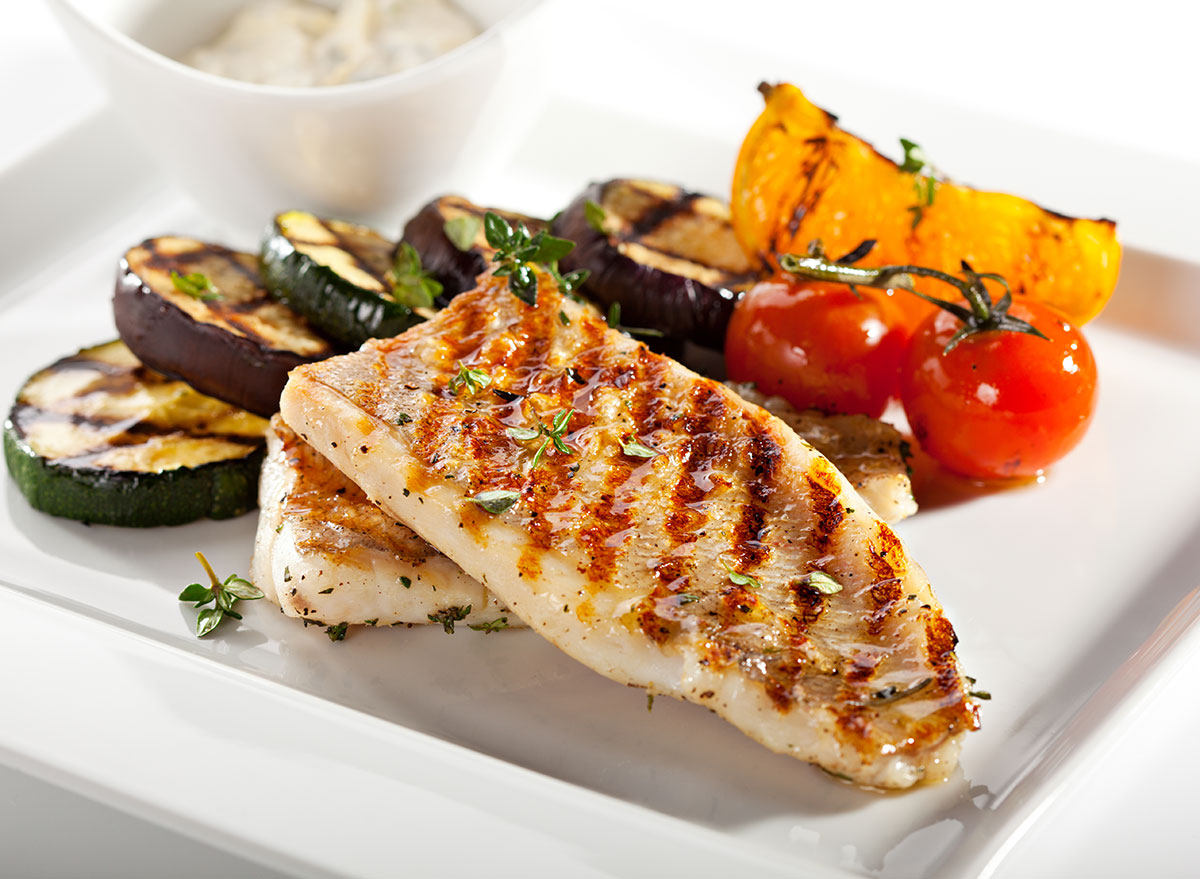
Fish has a regular rotation in Dr. Goldman's diet, and for good reason. Fish such as wild salmon nourish your brain and heart with healthy omega-3 fatty acids.
Apple
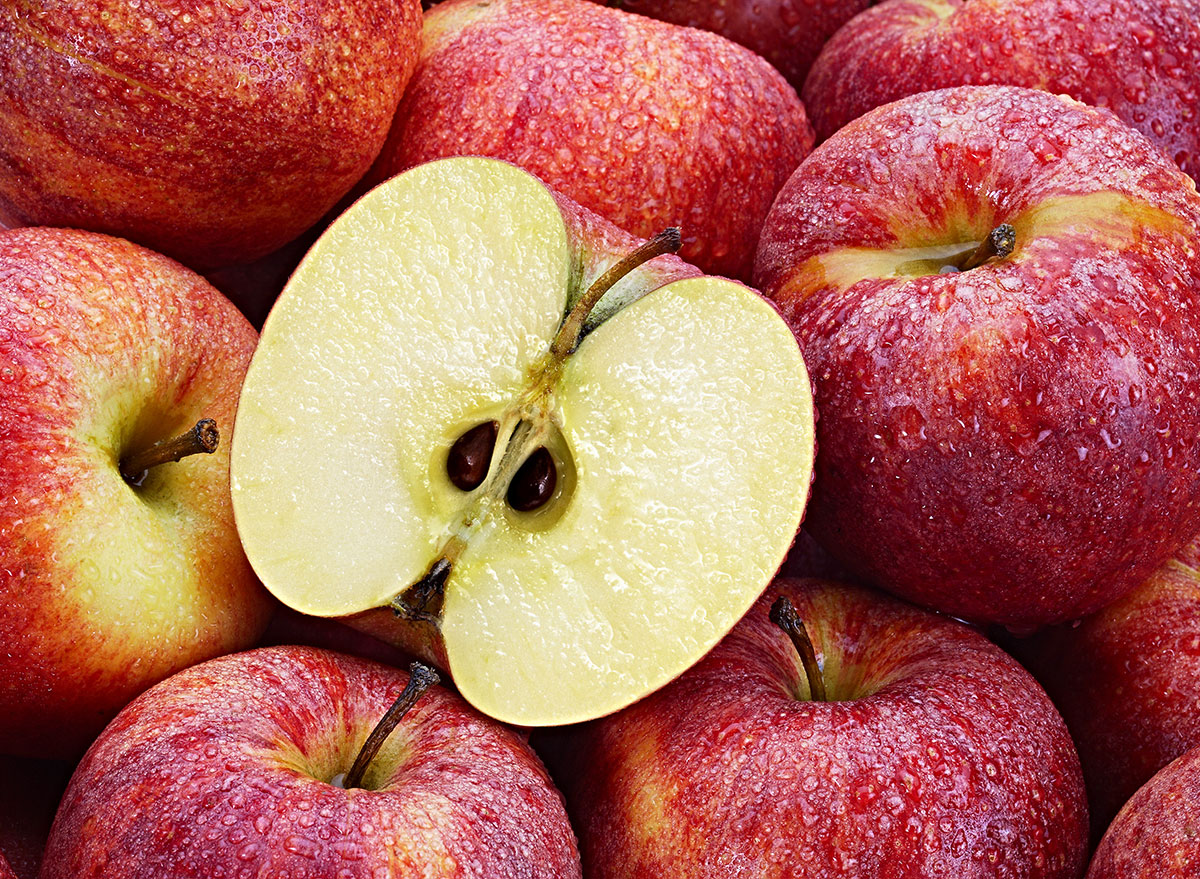
An apple a day may keep the doctor away, but you can't keep the experts themselves from reaching for the portable fruit. Dr. Goldman often chooses apples as a healthy snack option throughout the day to quell hunger pangs.
Blueberries

Antioxidant-rich berries like blueberries are often a mainstay in diets like Dr. Goldman's. They promote healthy, vibrant skin and may also reduce your risk for certain cancers because they work to fight off free radicals.
Raspberries
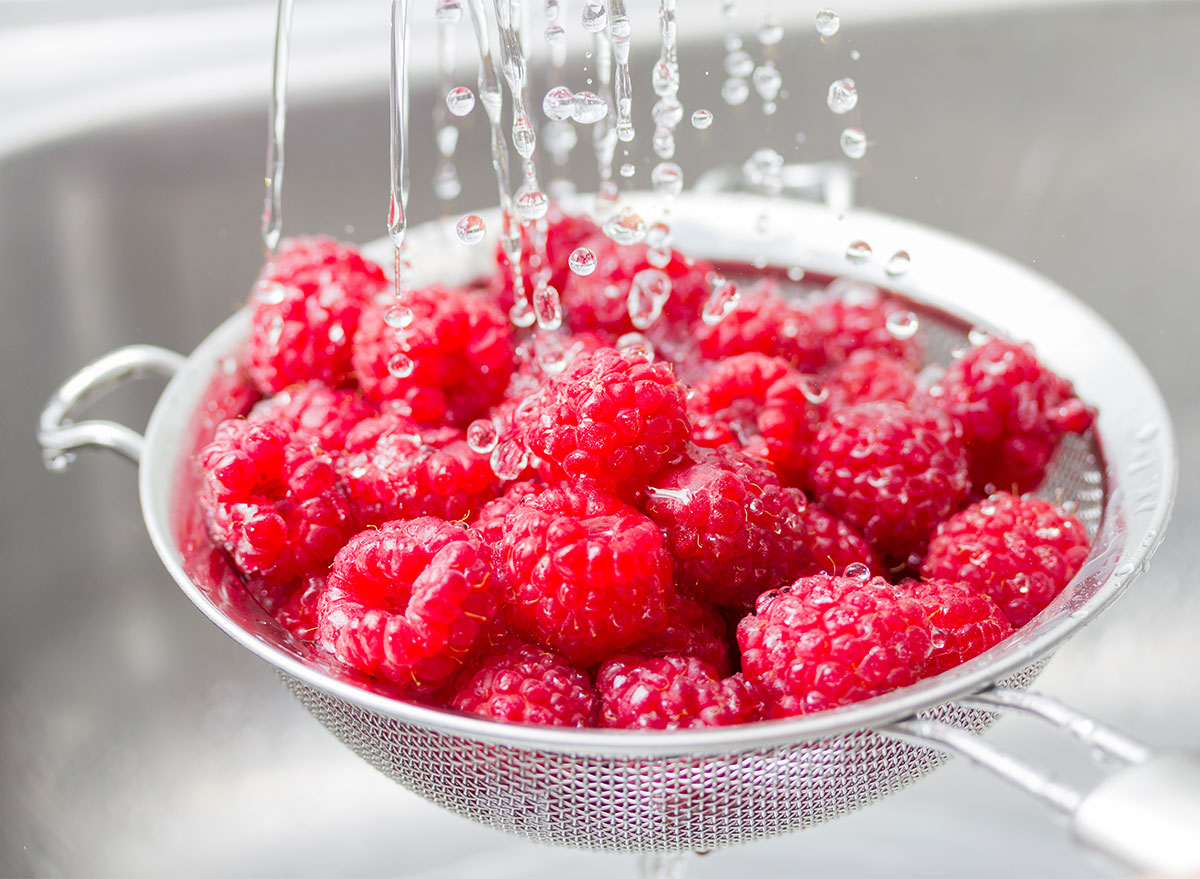
Rather than top off the day with a sugar-ridden, processed dessert, Dr. Goldman enjoys berries such as raspberries as an occasional evening snack. Raspberries have a whopping 8 grams of fiber per cup, which may help curb sweet cravings and unnecessary snacking by promoting greater feelings of fullness.
Avocado
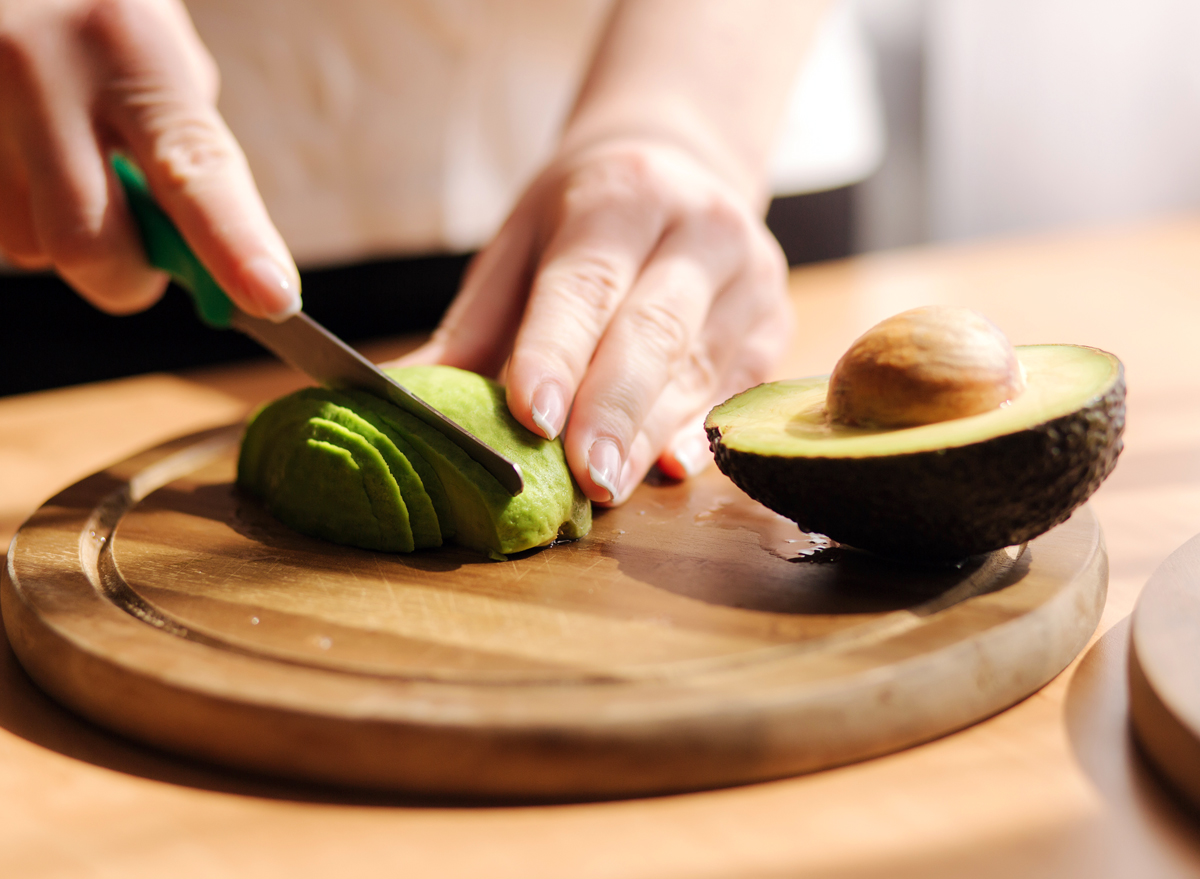
Dr. Goldman admits to adding veggies and avocado to almost anything that will allow for it. Avocados are rich in healthy monounsaturated fats that can help lower bad cholesterol, but it's important to consume the fatty fruit (yes, it's a fruit!) in moderation to reap the benefits.
Spinach
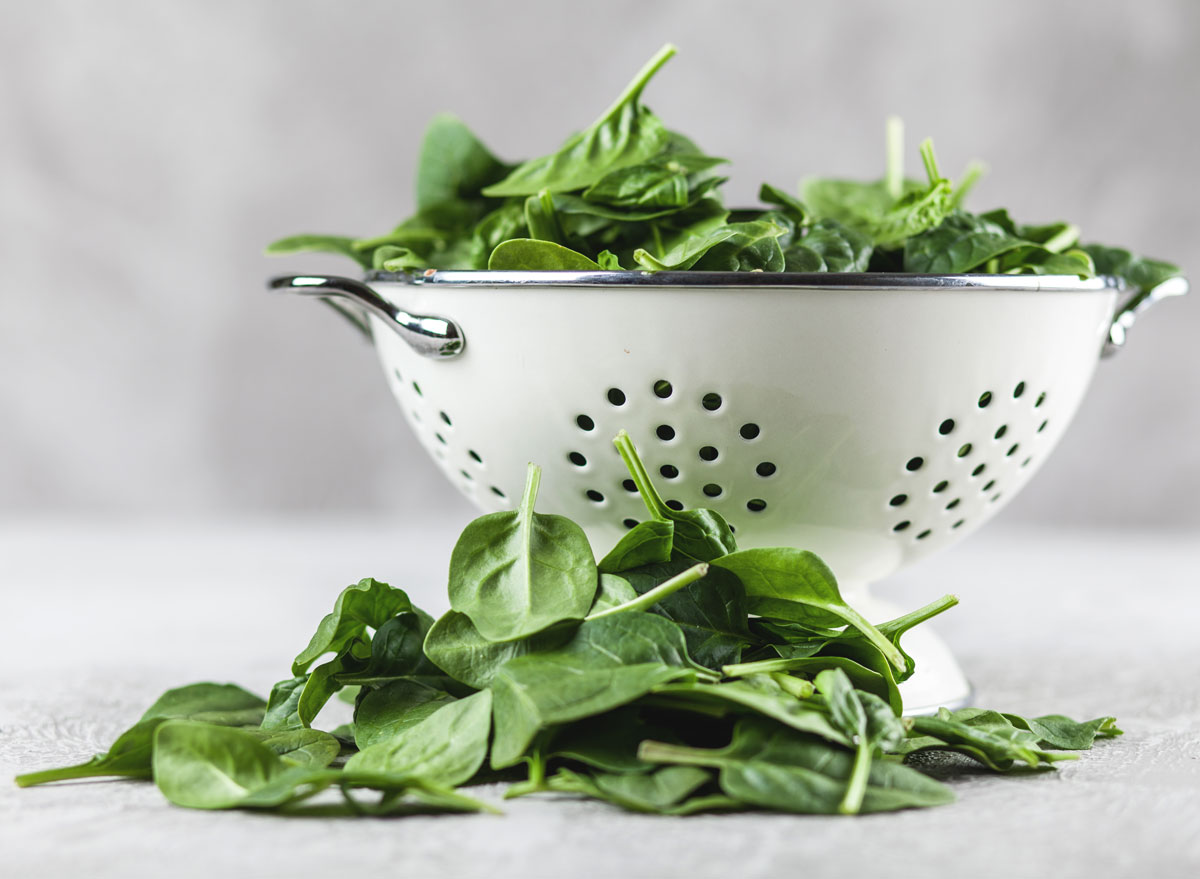
Spinach is low in calories and is a good source of vitamin A, which promotes healthy hair and skin. Dr. Goldman likes to toss spinach into a veggie-filled stir fry with lean protein for a satiating, nutrient-dense dinner.
Mushrooms
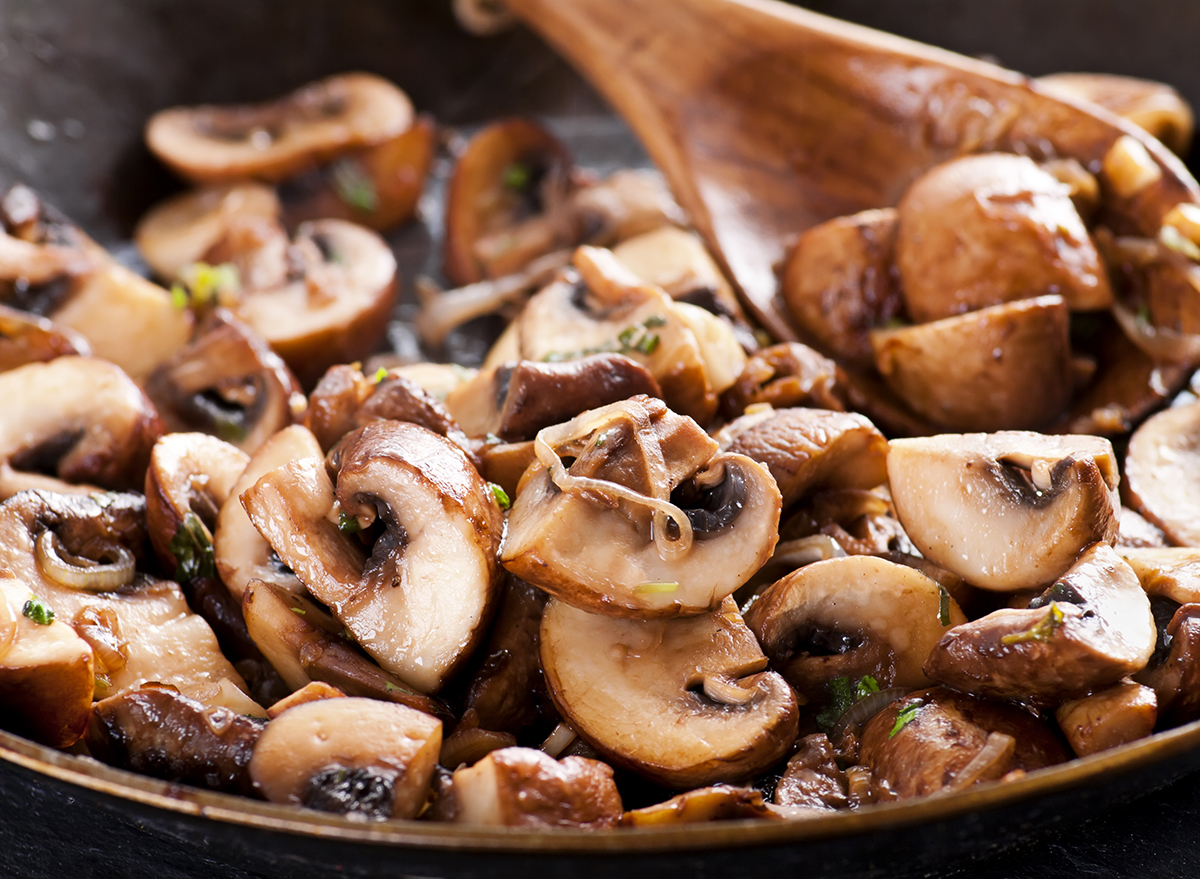
Mushrooms also make a frequent appearance in Dr. Goldman's vegetable-stacked lunches and dinners throughout the week. Mushrooms are rich in B vitamins, which help the body source energy from food and also encourage the formation of red blood cells.
Onions
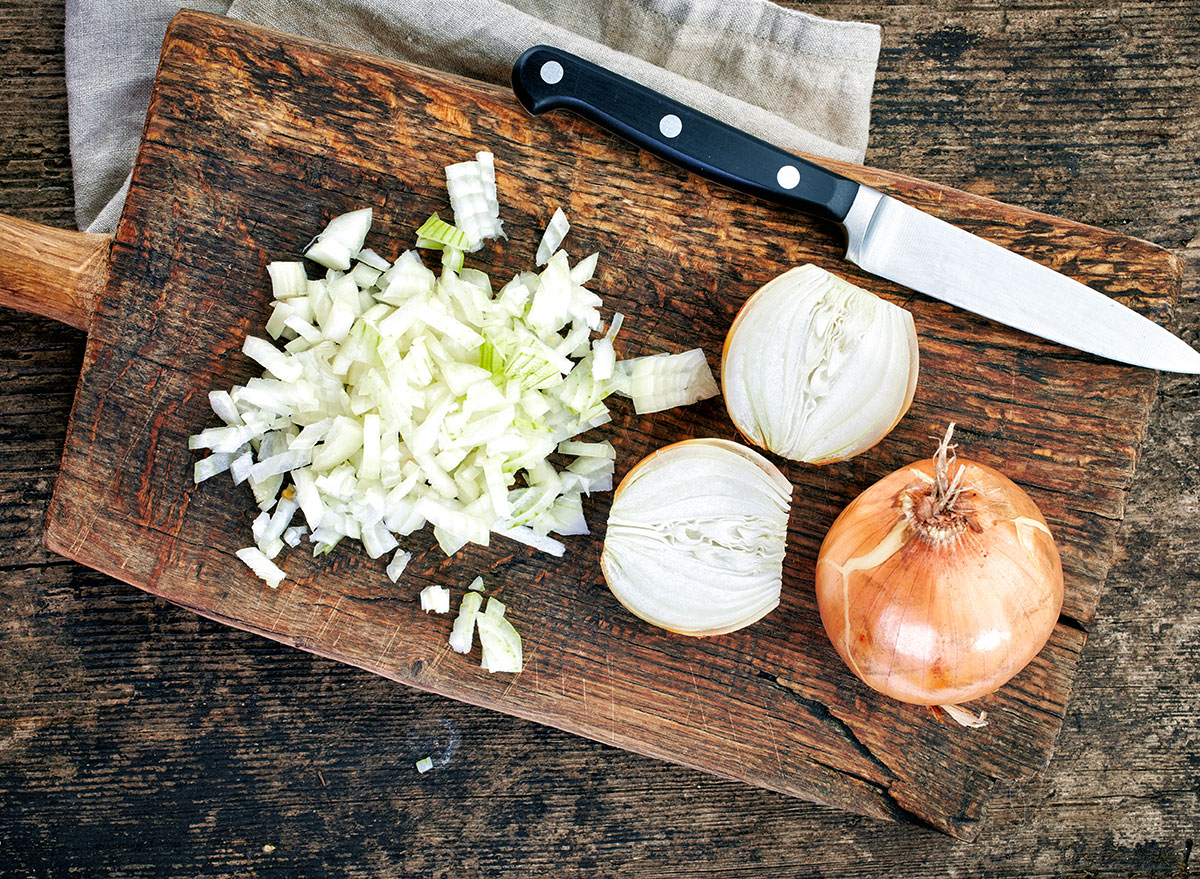
Though onions are usually looked at as a flavor booster, they actually contain vitamin C. This vital vitamin helps to ward off free radicals and as a result may reduce your risk for cancer. Dr. Goldman often keeps a few onions on hand to add to her vegetable-centric stir-frys.
Broccoli
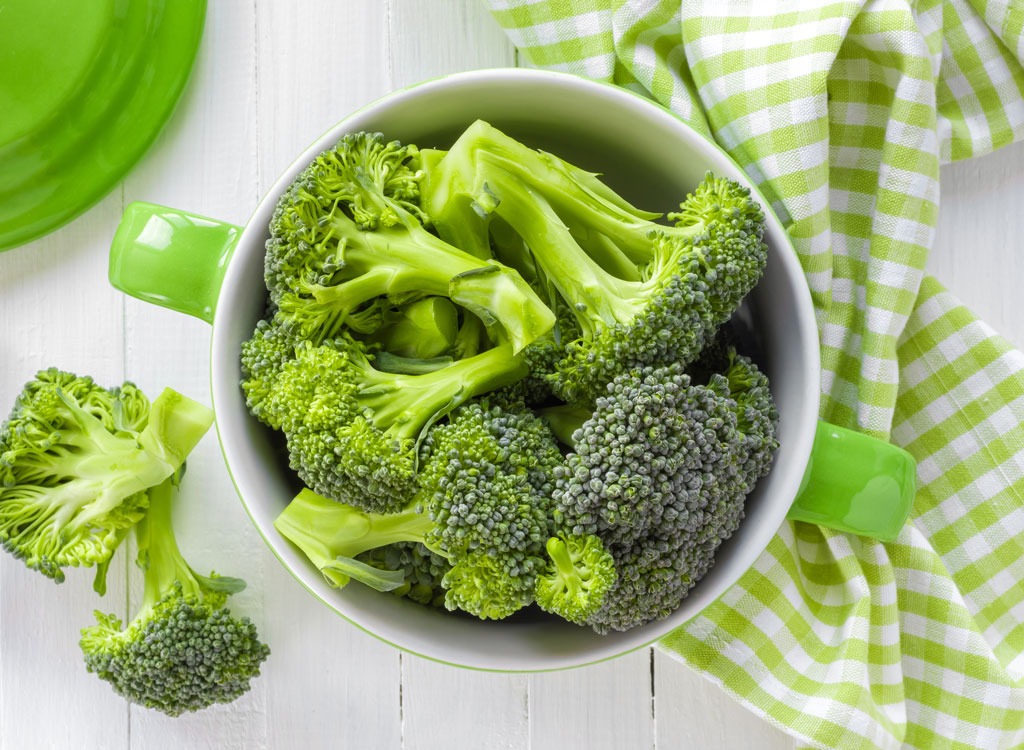
"By eating a balanced meal that consists of whole grains, lean proteins, vegetables and fruits, as well as drinking water throughout the day, one should be getting the proper nutrients they need for their bodies (and brain) to function properly," says Dr. Goldman. Broccoli is another vegetable she'll keep around to help fuel her body with necessary nutrients.
Shrimp
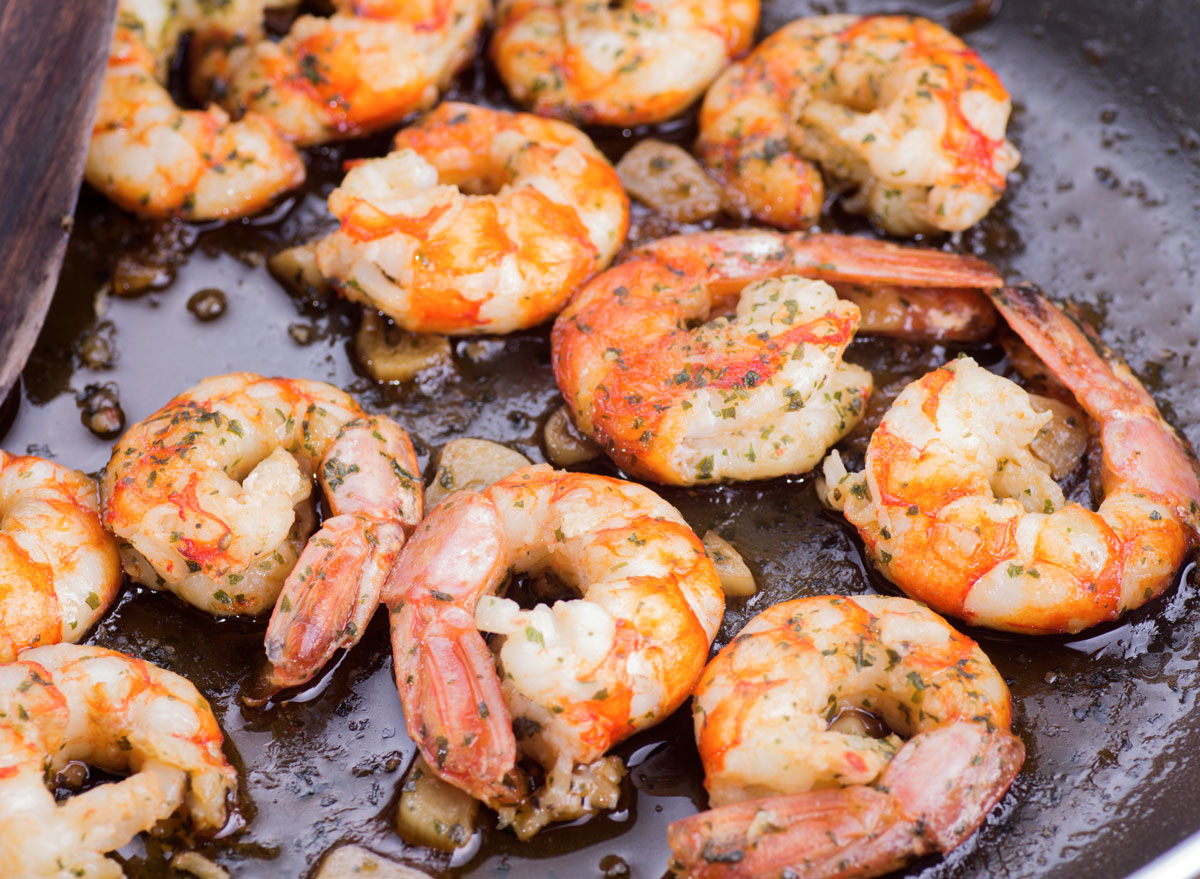
Dr. Goldman likes to switch up her protein sources by tossing shrimp into her stir-fry dishes. Shrimp are lower in calories (about 7 calories per medium shrimp) and are primarily made of protein, offering your body about 20 grams per 3-ounce serving!
Cauliflower

Whether you steam it, bake it or pulse it into "rice" like Dr. Goldman, cauliflower is a healthy addition to your meals due to its rich fiber content, which promotes digestive health. The veggie also contains choline, a type of B vitamin which has been found to encourage healthy brain development.
Almonds
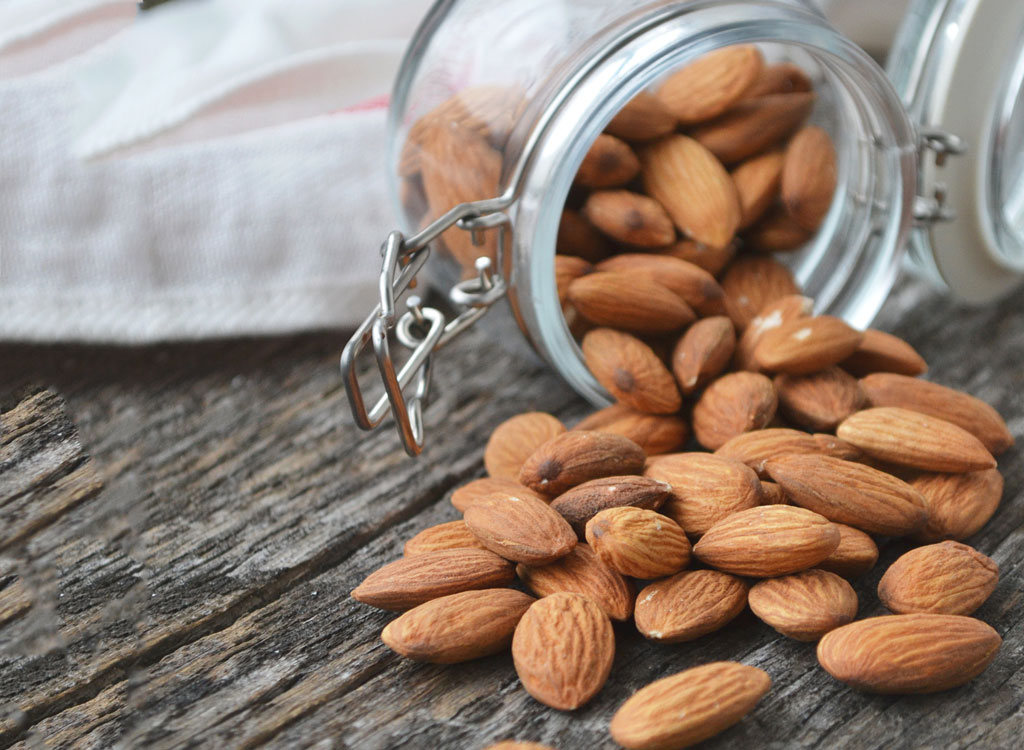
"Foods that are healthy fats that hold water are particularly good for the hair. An example would be unsalted nuts like almonds," says Dr. Mona Gohara, Associate Clinical Professor in the Department of Dermatology at Yale School of Medicine. Unsalted almonds are on her list of healthy snack choices she might reach for between meals.
Grilled Chicken Salad
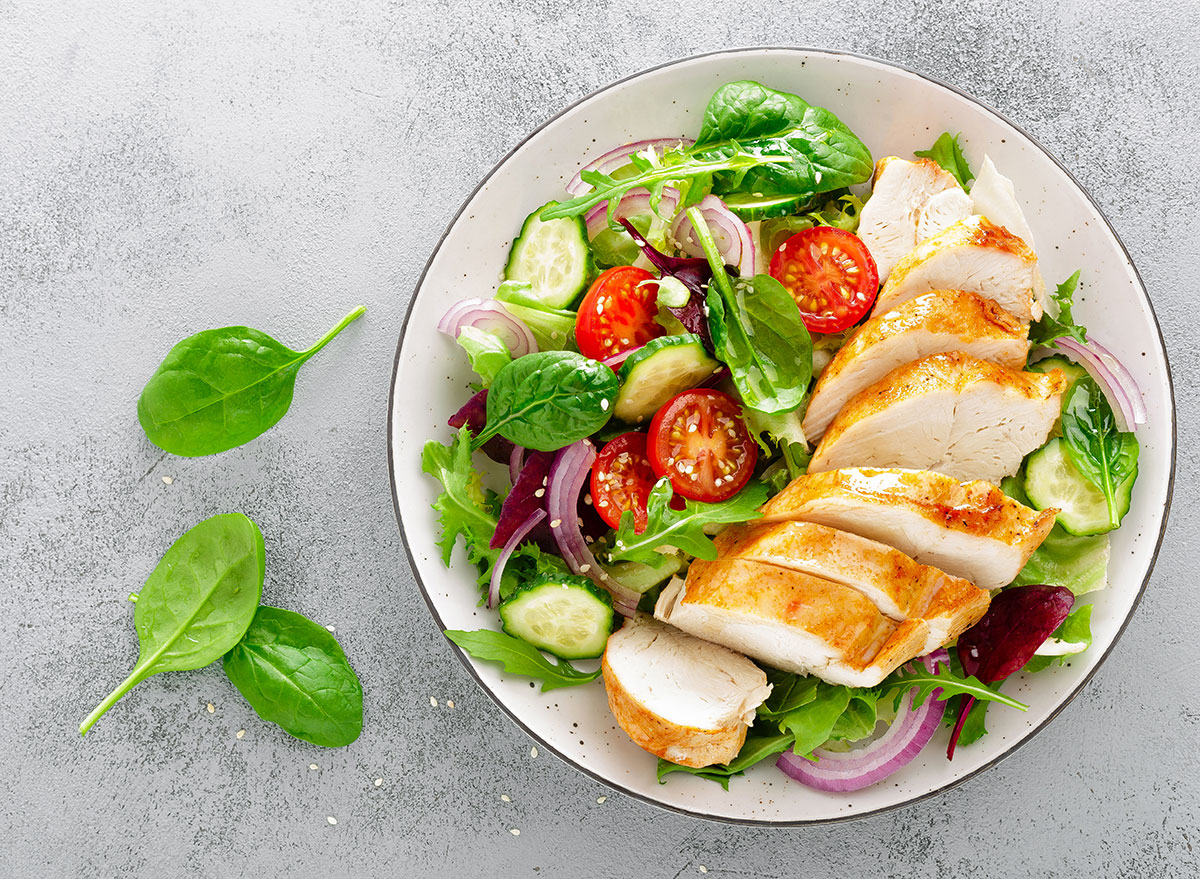
"[If I ever find myself at a fast food type place], I look for something like a grilled chicken salad to avoid those things that will spike my glycemic index," says Dr. Gohara. Opting for a grilled chicken salad will provide your body with lean protein and help fill you up with low calorie, high volume leafy greens. Just be sure you're being mindful of all the toppings and salad dressings!
Egg Whites
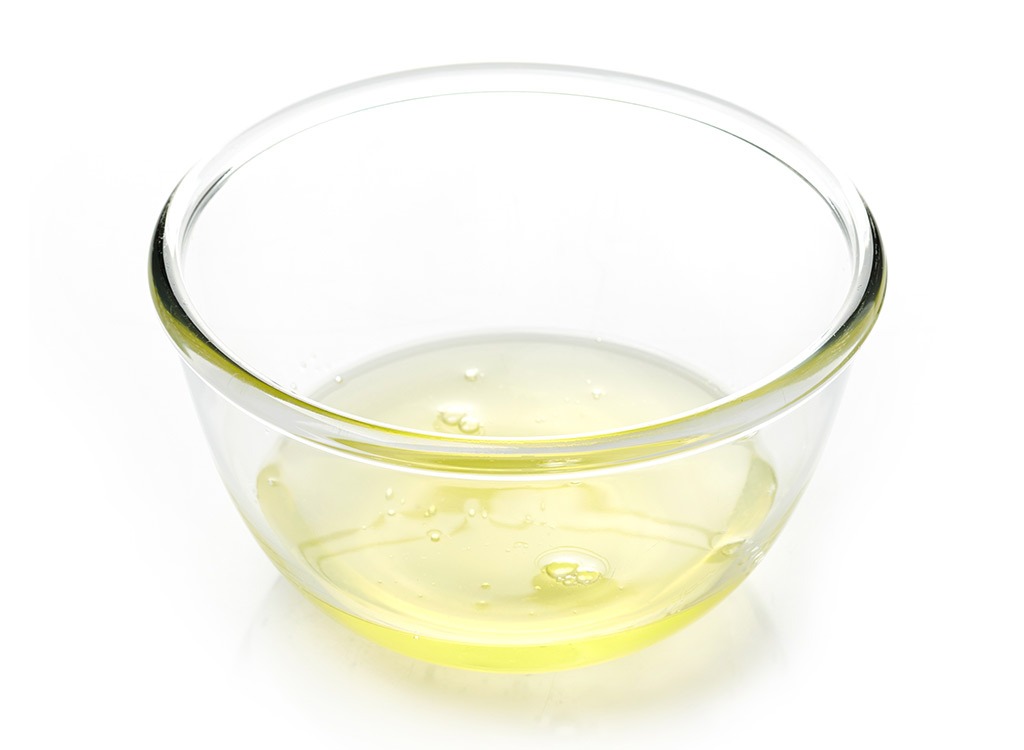
Though she's not afraid to eat the whole egg, Dr. Gohara likes to mix things up in the morning. "For breakfast I often have some type of egg or egg white with vegetables in it," says Dr. Gohara.
Multigrain Wraps
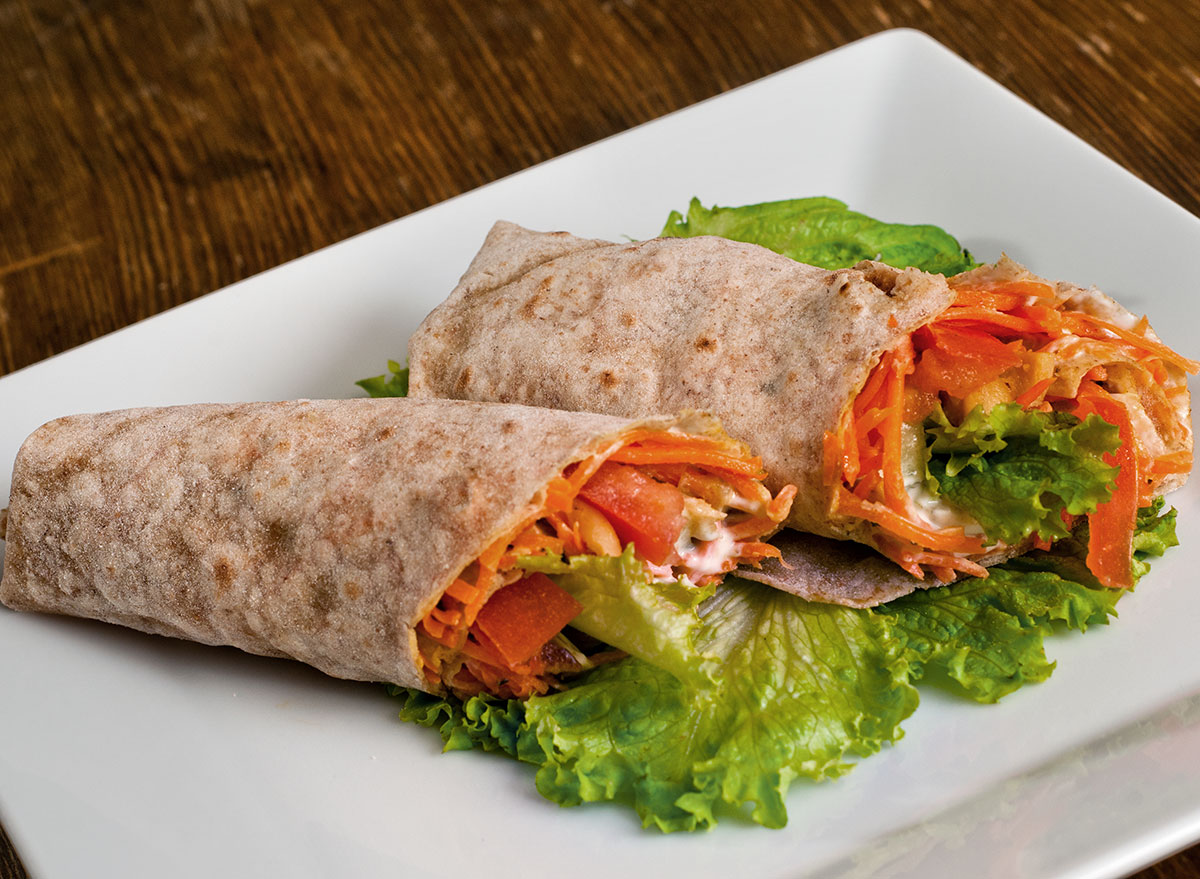
To balance out her breakfast, Dr. Gohara will often pair her veggie omelets with a hearty multigrain wrap. Including a whole grain in the morning can help energize your body and offer promote regularity thanks to the added fiber content.
Sushi Roll
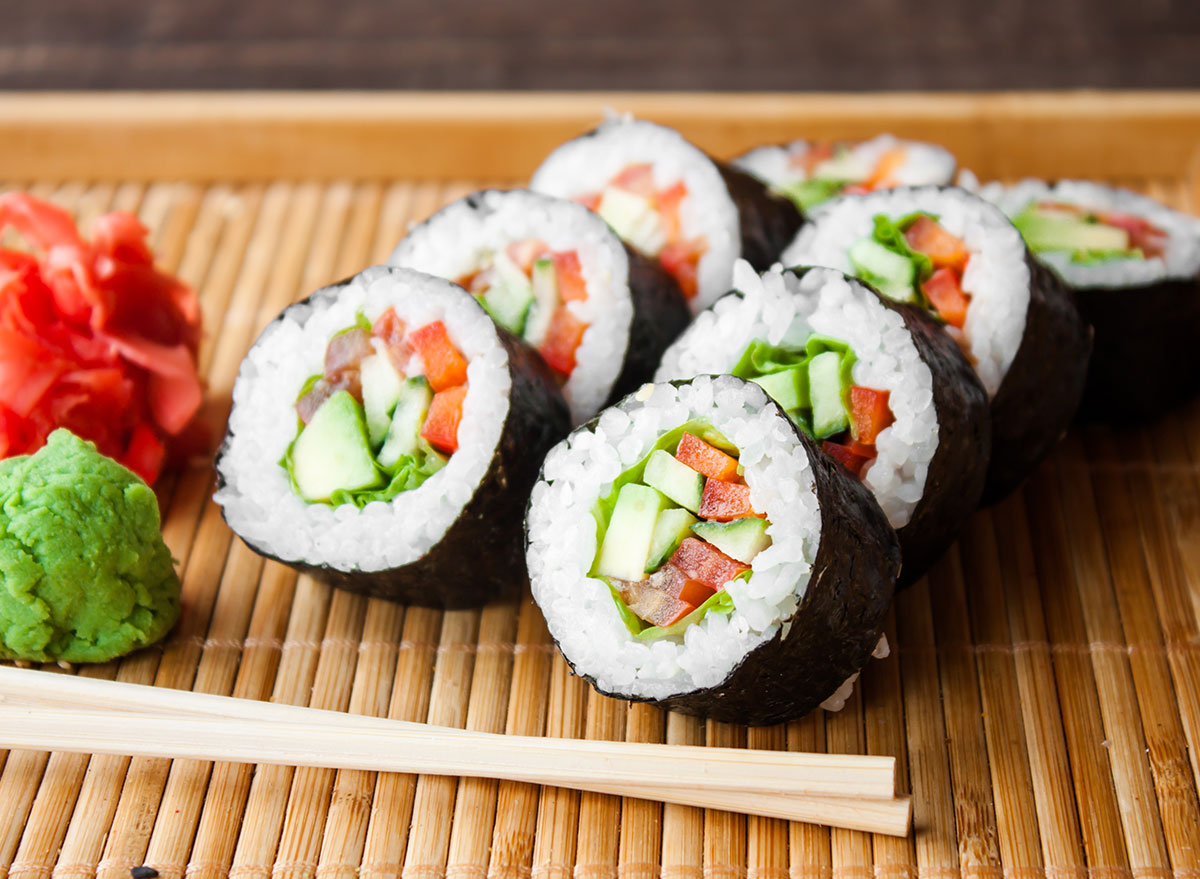
"For lunch, I might have a sushi roll, although you have to be aware of hidden sources of sugar and white sushi rice typically has a lot of sugar in it, so sometimes I'll have them make it without the rice," says Dr. Gohara. If you avoid the specialty rolls packed with rice and high calorie sauces and keep portions under control, sushi rolls can be a healthier option when eating out thanks to healthy fats and protein provided by the fish.
Carrots

Carrots and hummus are one of Dr. Gohara's go-to snacks in the afternoon. Carrots not only satisfy the need to crunch, but they are a good source of beta-carotene which converts to vitamin A in the body promoting healthy vision and a strong immune system.
Hummus
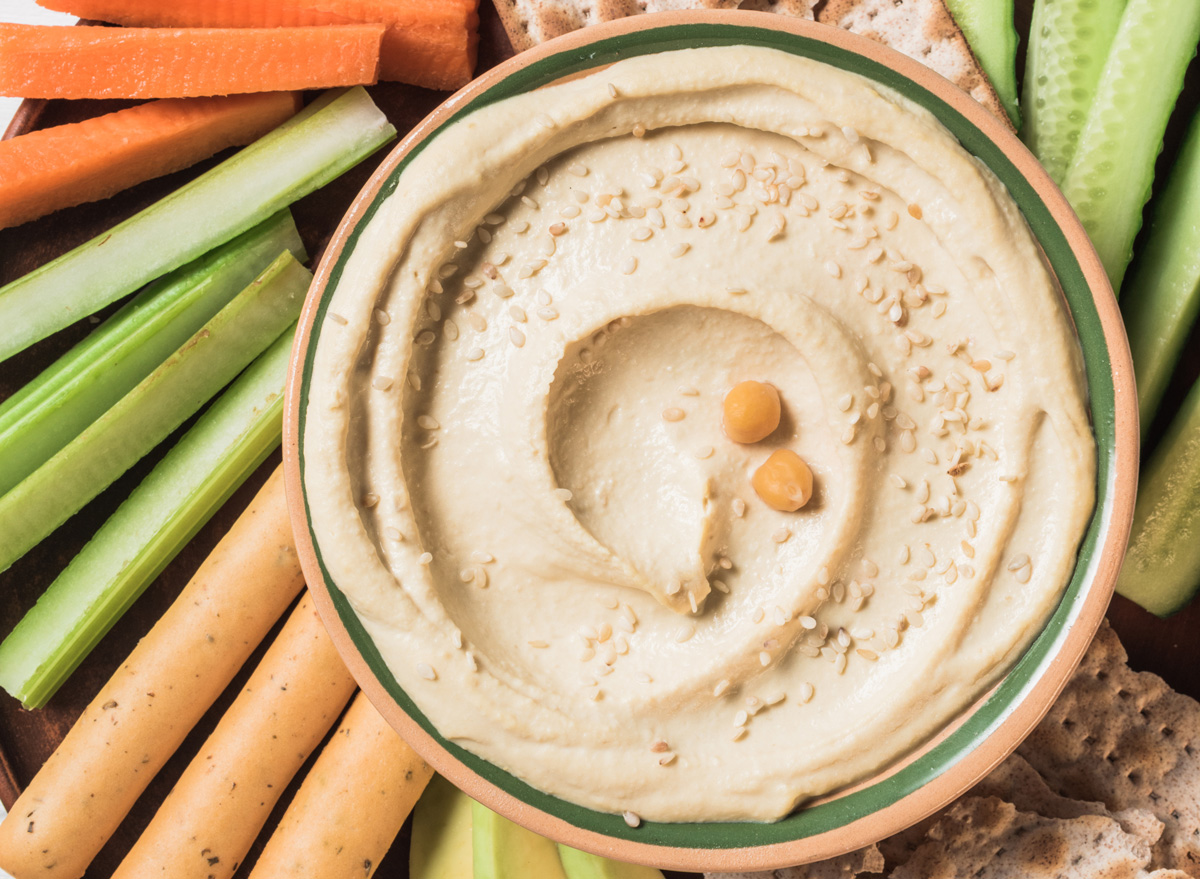
With chickpeas as the main ingredient, hummus is a good source of plant-based protein and can help promote satiety and steady blood sugar levels. Dr. Gohara pairs the dip with veggies for a healthy afternoon bite. If you want to make your own spread at home, check out this simple homemade hummus recipe for you to try.
Cheese Stick
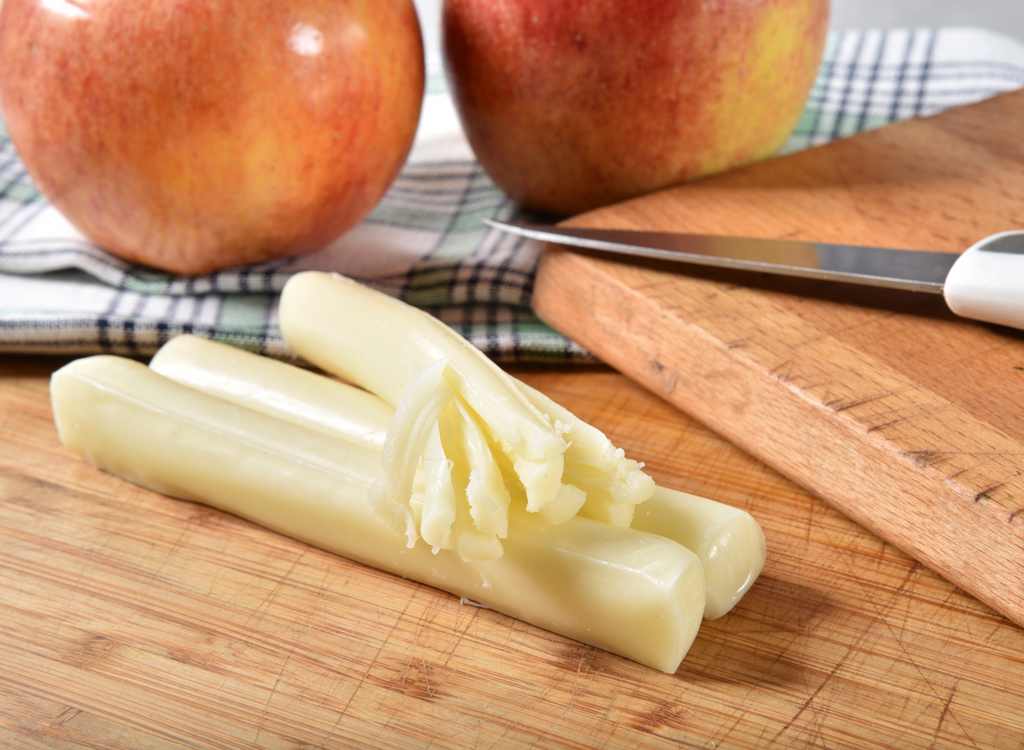
"I always like to have some type of snack throughout the day like a cheese stick and an apple," says Dr. Gohara. Cheese sticks are perfectly pre-portioned and can help boost your total protein intake for the day.
Turmeric
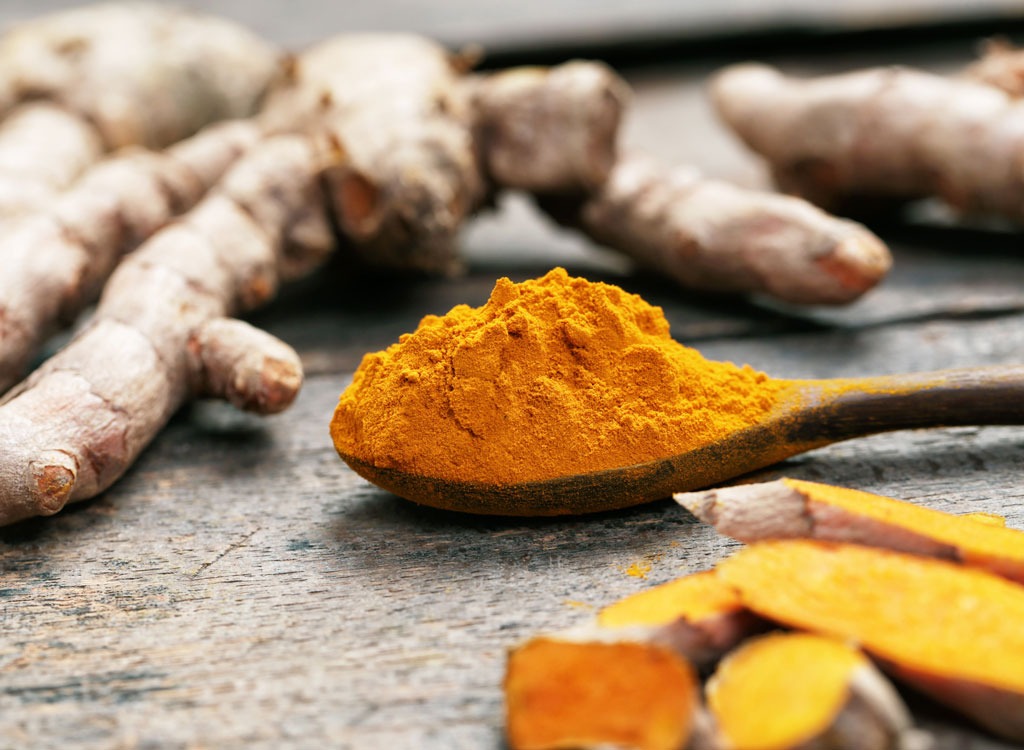
If it's available, Dr. Gohara will reach for dishes like a curry that contain the spice turmeric. "Turmeric is supposed to be really beneficial to the skin and anti-inflammatory throughout the whole body," says Dr. Gohara.
Kale
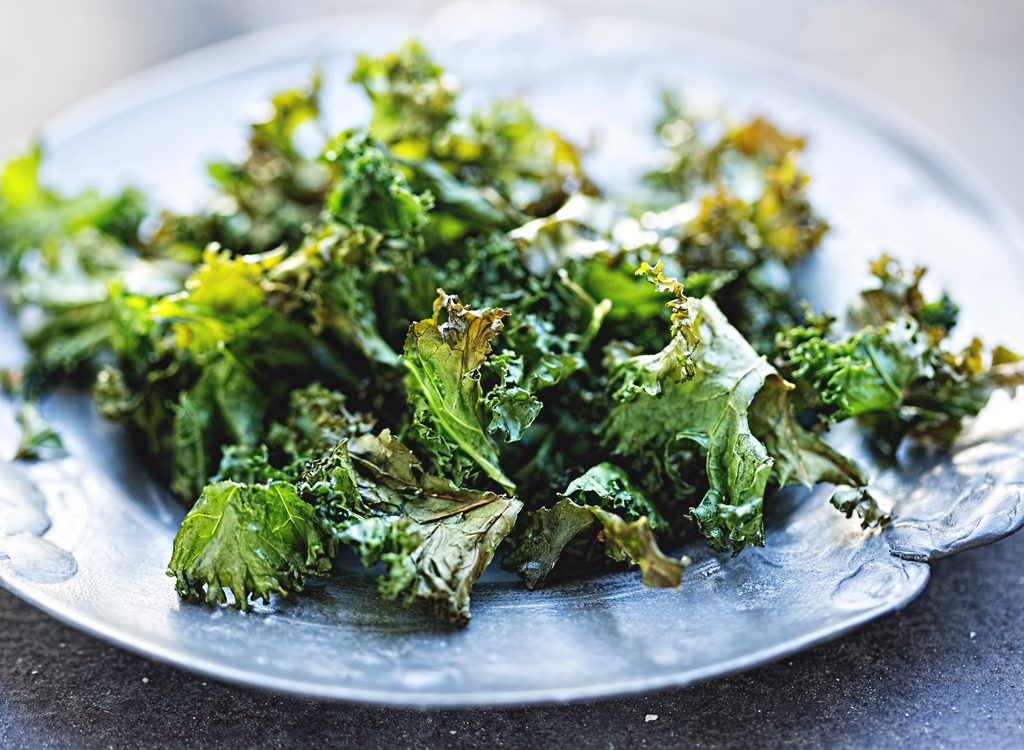
Celebrity weight loss doctor Joel Fuhrman, M.D., board certified family physician and six-time New York Times best-selling author has over 25 years of experience helping patients heal themselves through nutritional methods. He's devised a formula for the perfect smoothie, and kale is often one of the star ingredients.
Flaxseeds
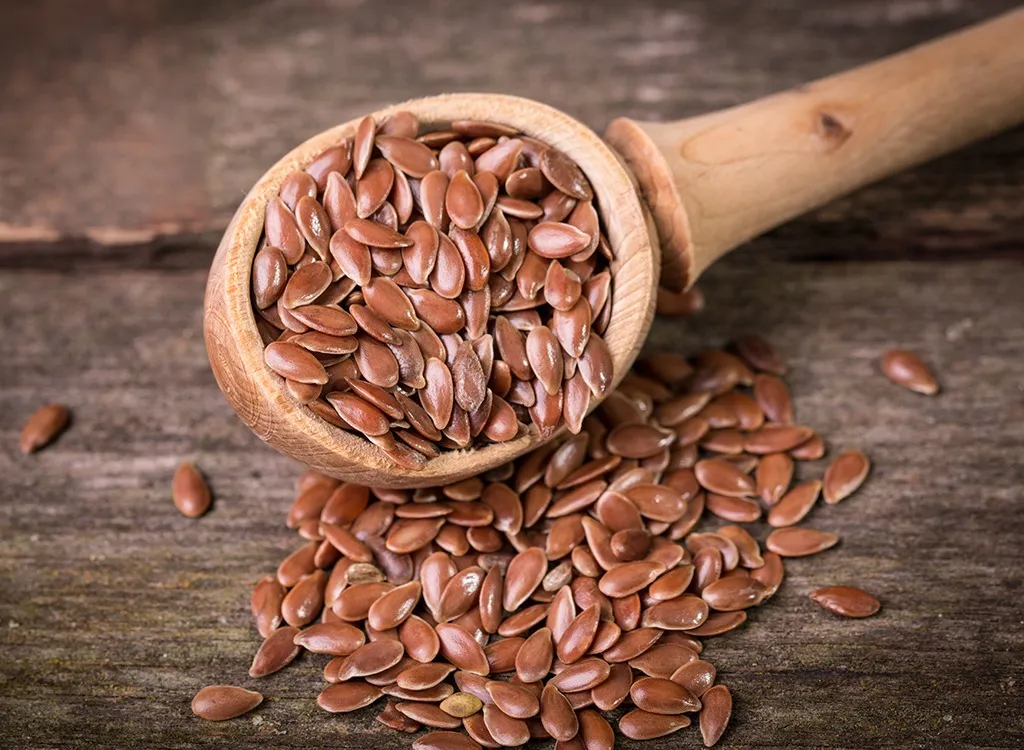
Flaxseeds are another common addition in Dr. Fhurman's smoothies. The tiny seeds contain heart-healthy omega-3 fatty acids and are also a good source of lignans, which are a type of antioxidant that may reduce cancer risk.
Mango
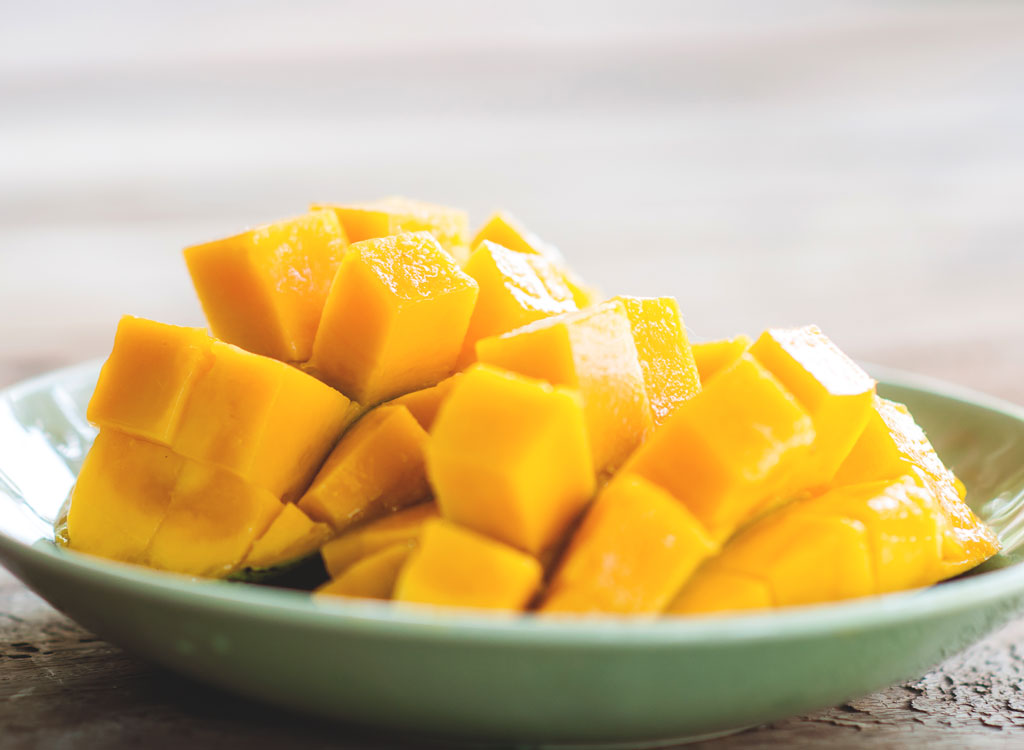
Along with kale and flax seeds, you'll often find mango making an appearance in one of Dr. Fuhrman's healthy shakes. Mango contains adequate amounts of fiber and water, helping to promote regularity. One cup also provides you will 100% of your daily dosage of vitamin C!
Romaine Lettuce
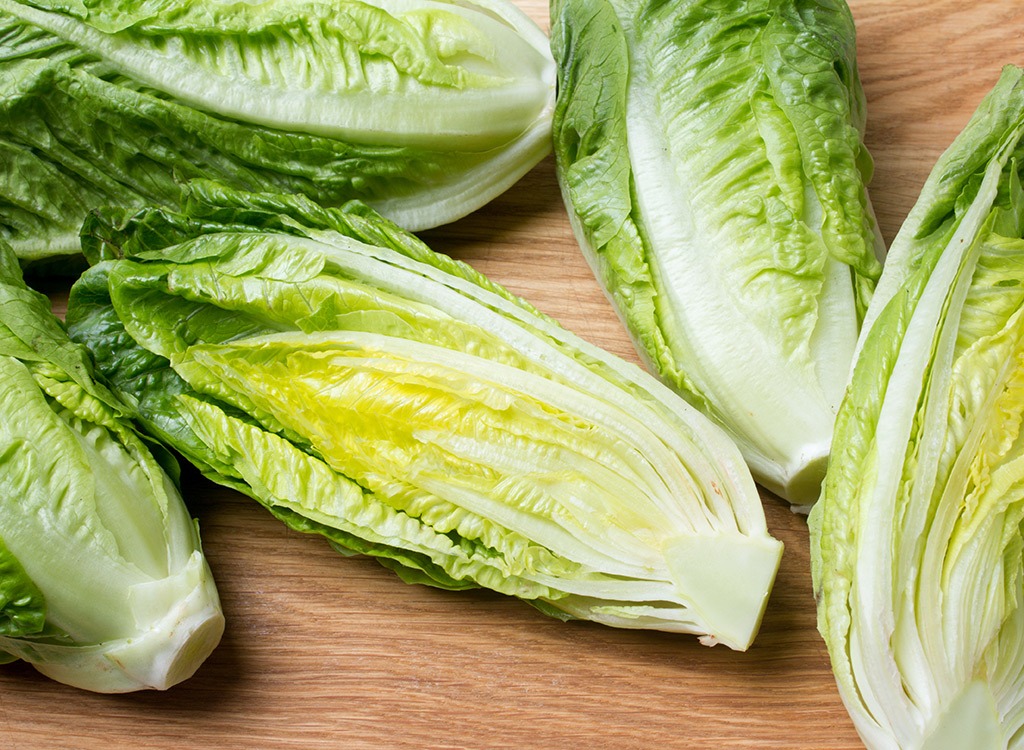
Leafy greens are a staple in the diets of most health experts and by adding romaine lettuce to his smoothies, Dr. Fuhrman is able to increase the vitamin profile of his drink thanks to levels of vitamin C, vitamin K, and folate found in the green veggie.
Whole Greek Yogurt
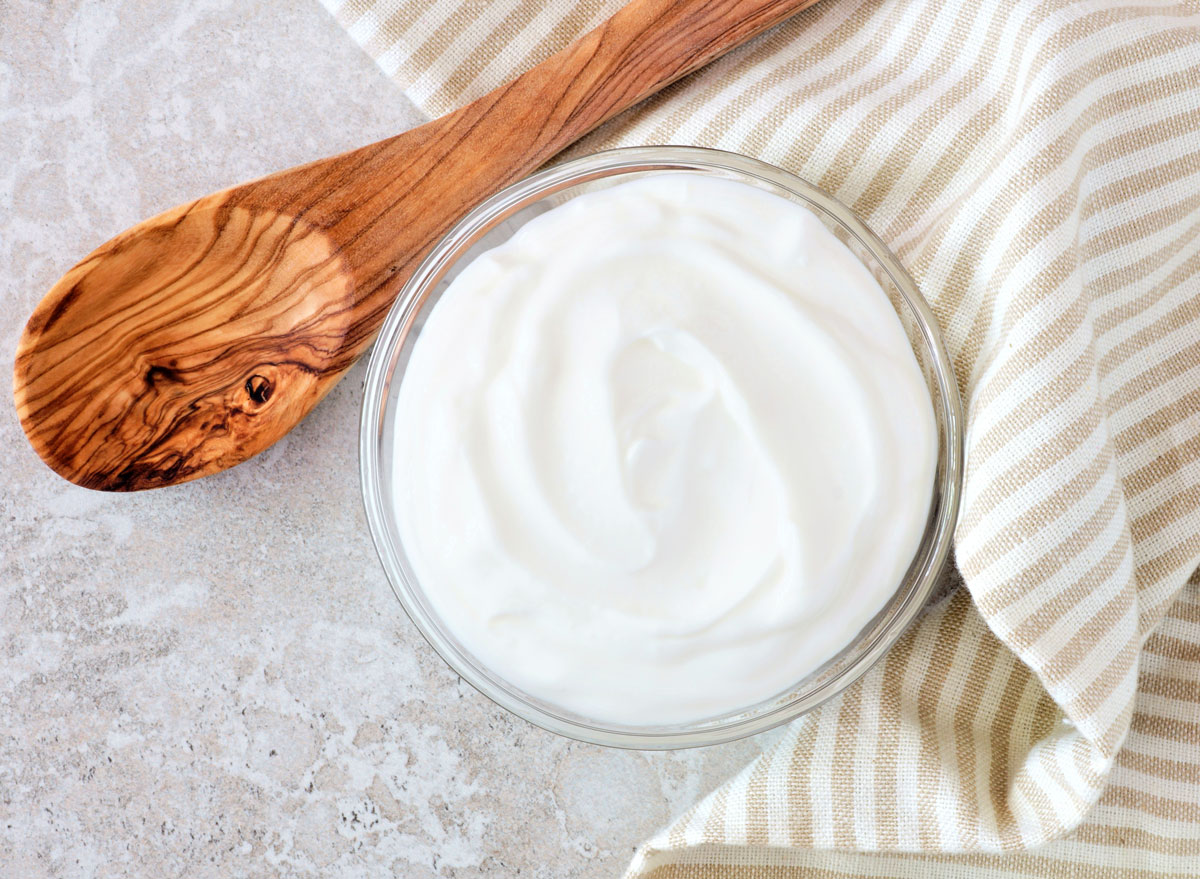
"I almost always have something sweet each day and recently I've been having whole Greek yogurt with a banana, honey and cinnamon sprinkled on top. This way you get protein in your dessert!" says Dr. Gohara. Greek yogurt is also a good source of gut-friendly probiotics, that can encourage better digestion and also boost immunity.
Honey
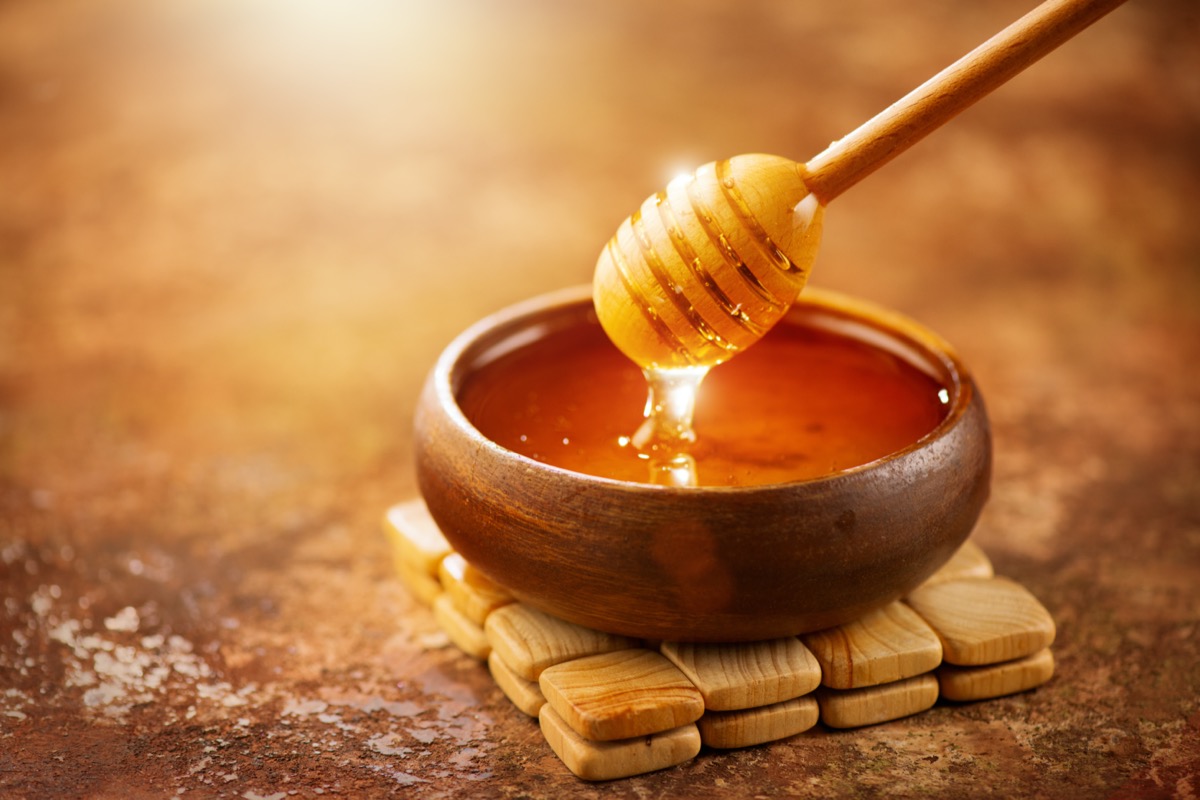
To cure her craving for sweets, Dr. Gohara tops her yogurt with mineral-rich honey. The natural source of sugar contains minerals such as copper, iron, magnesium, manganese, phosphorus, potassium, sodium and zinc which can help boost overall health and strengthen the immune system.
Cinnamon
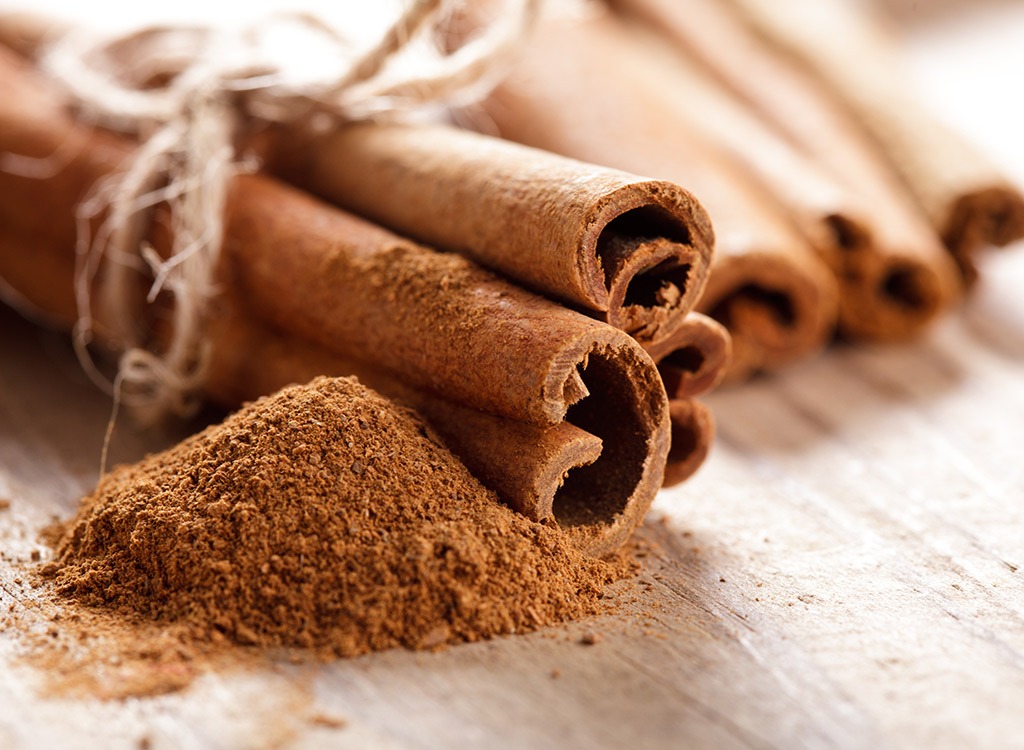
This sweet spice is often added to Dr. Gohara's desserts. Research conducted by the U.S. Department of Agriculture found that consuming cinnamon may help reduce blood sugar levels and as a result help reduce your risk for diabetes and heart disease.
Larabars
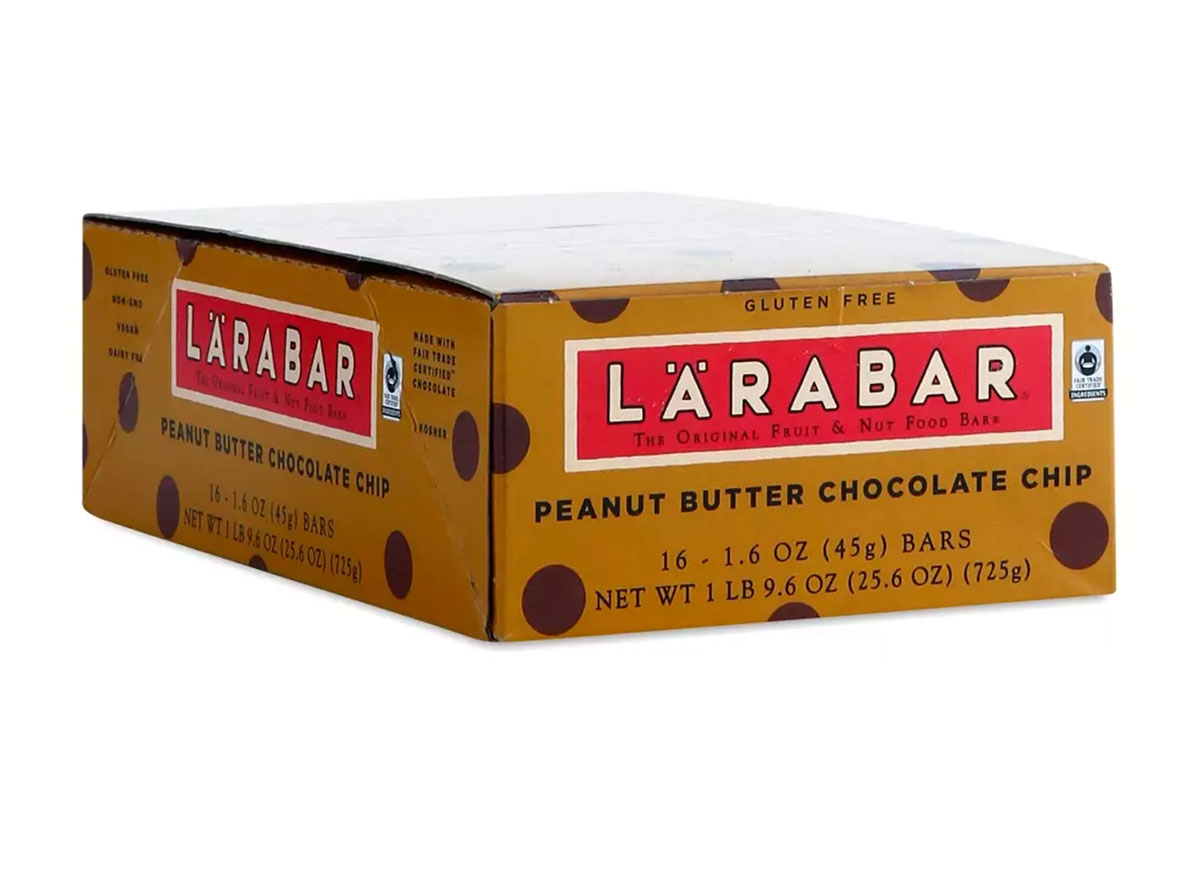
The best part about Larabars is that you can actually understand the ingredients listed on the nutrition label, which is why Dr. Gohara will reach for one every now and then. "I like Larabars because they contain whole ingredients like dates and coconut that you can recognize," says Dr. Gohara.
Guacamole
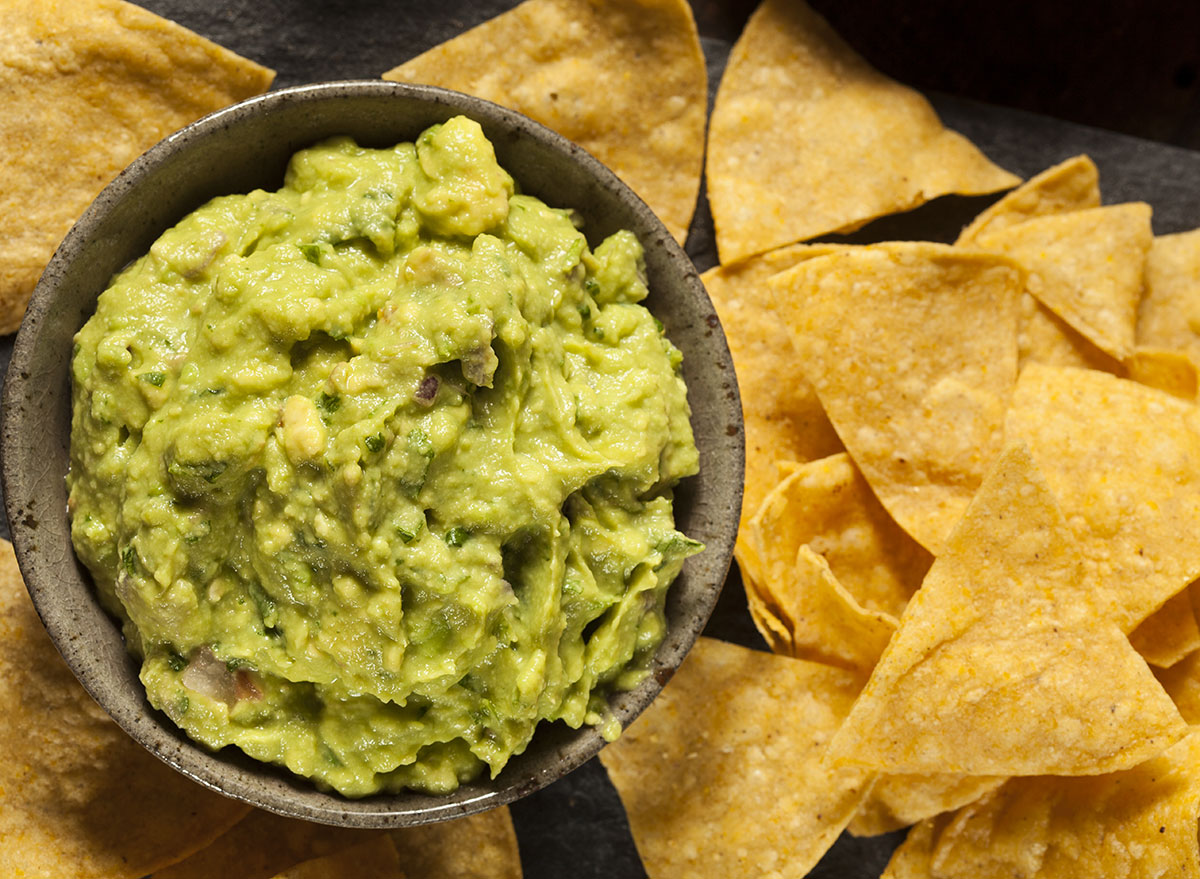
Thanks to the main ingredient—avocados—guacamole is full of healthy fats and surprisingly rich in fiber, which can satisfy hunger and help you feel fuller for longer. So it's no wonder that Dr. Gohara considers a small amount of guac to be a good snack choice.
Olive Oil

One of the staples of the often praised mediterranean diet, olive oil is a great source of healthy monounsaturated fats. You'll often find Dr. Gohara dressing her salads with a little olive oil and vinegar as a heart-healthy alternative to bottled salad dressings.
Balsamic Vinegar
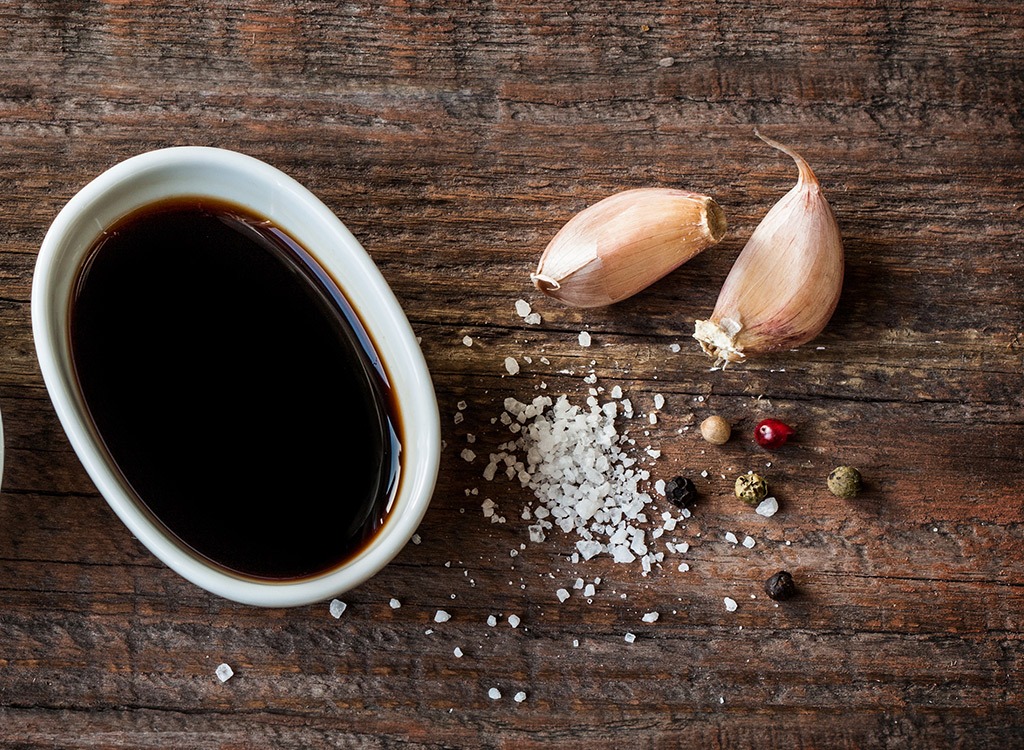
"I think balsamic vinegar will turn anything into gold," says Dr. Gohara, which is why it has found a regular spot in her diet. Balsamic vinegar is low in calories and low on the glycemic index, which makes it a smart choice if you're trying to maintain or lose weight.
Cherries
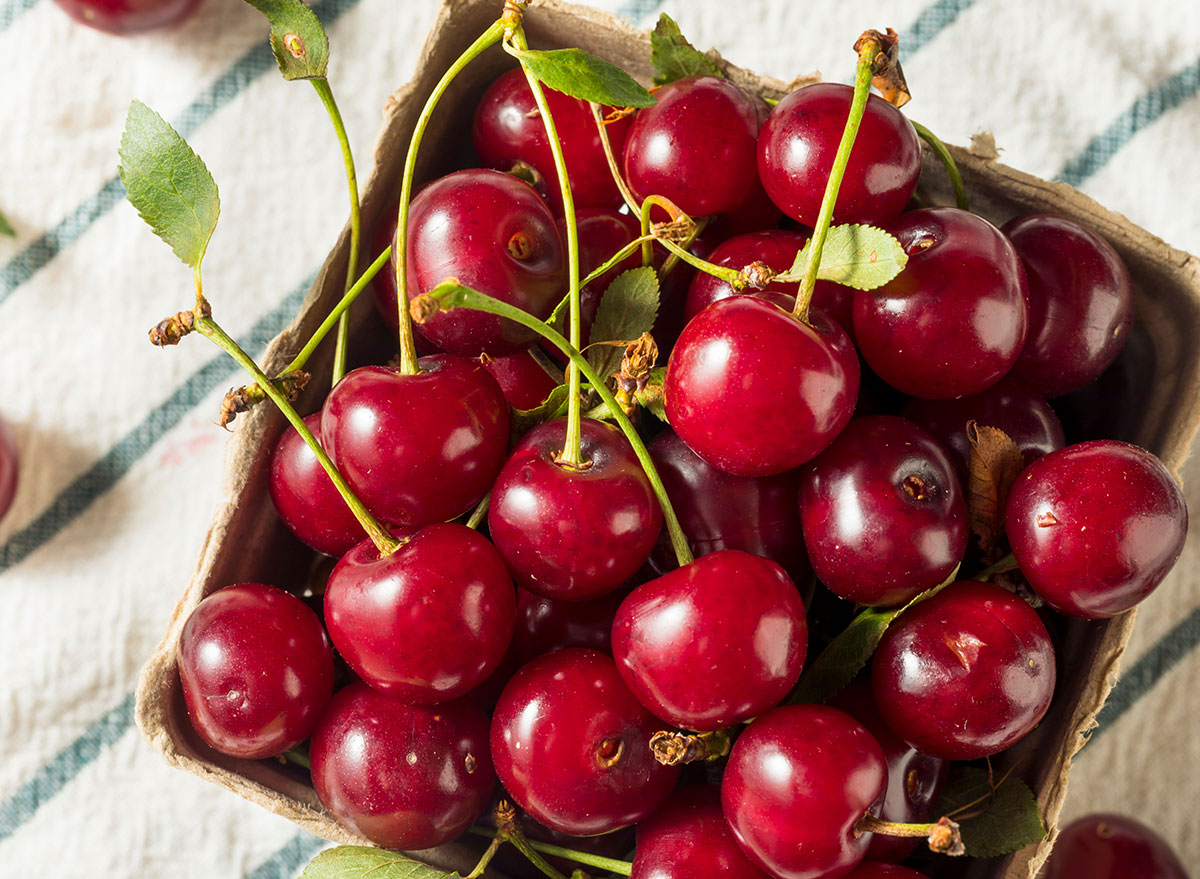
You'll often find cherries in the weekly rotation for professionals like Dr. Fuhrman. They're great on their own and make a nice addition to smoothies because they add natural sweetness. Not to mention, research published by the University of Michigan Health System found that the fruit can help with weight management by warding off the build-up of belly fat.
Collards
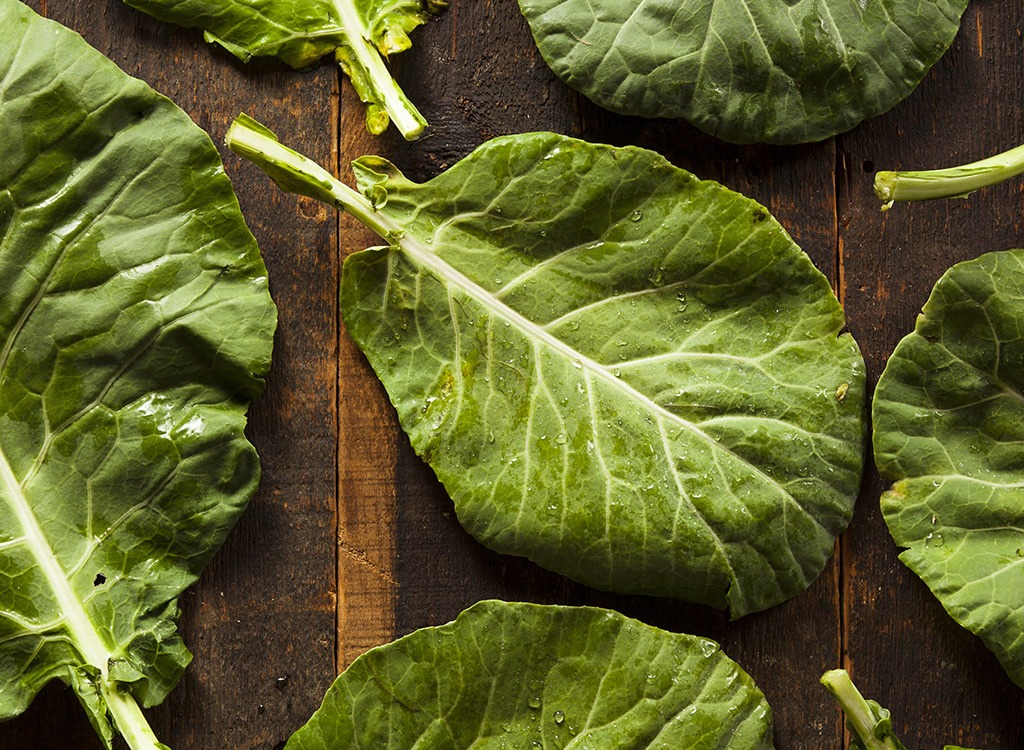
Collards may not be your go-to leafy green, but they make the list for people like Dr. Fuhrman. One cup of collard greens offers over 250 percent of a person's daily needs for vitamin A, which is an important nutrient for healthy vision.
Cottage Cheese
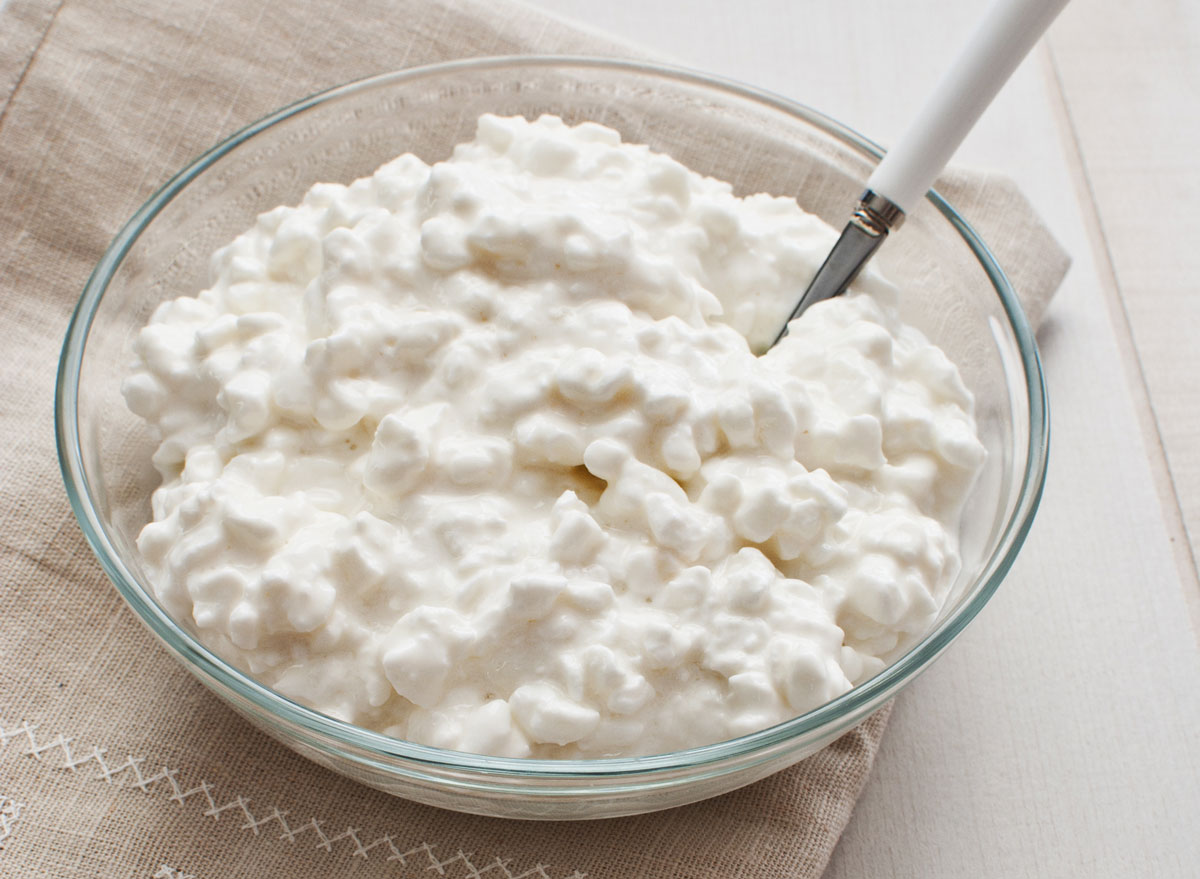
Cottage cheese is one of Maria-Paula Carrillo's, MS, RDN, LD Registered Dietitian Nutritionist favorite foods to incorporate into her breakfasts, lunches and dinners. Often she'll pair the high protein food with eggs and whole-grain toast or even go as far as to put it on top of salads.
Whole Grain English Muffin

"Whole grains give us fiber, which is key to helping digestion and satiety. They allow you to stay satisfied for longer. Whole grains prevent the rise in blood sugar as well and help to regulate blood sugar. They also work to reduce cholesterol, which is heart-healthy," says Carrillo. She'll often include a whole-grain English muffin in her breakfast.
Grapes
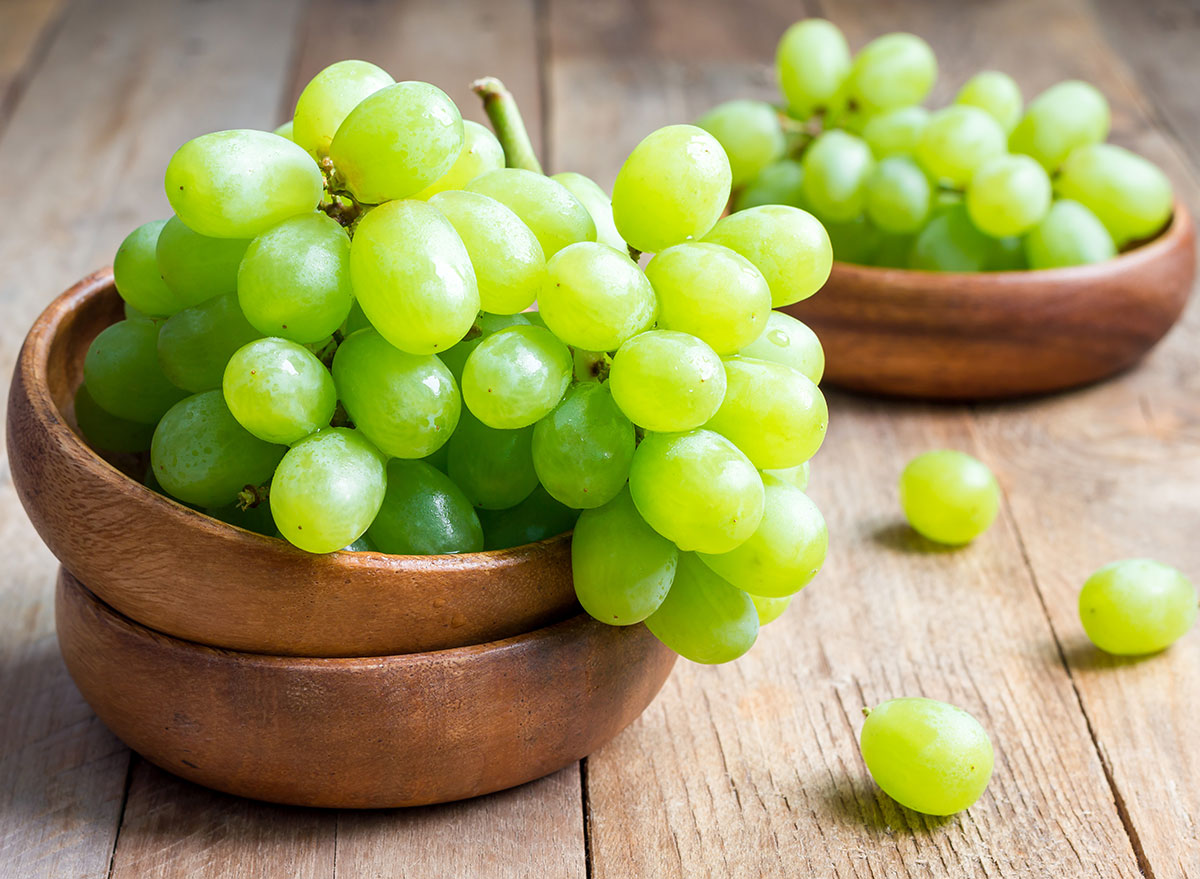
"I usually have some fruit with breakfast like grapes, oranges or berries. I'm a mom and I'm big into being an example for my two daughters. I try to eat foods that they can eat too," says Carrillo.
Tuna
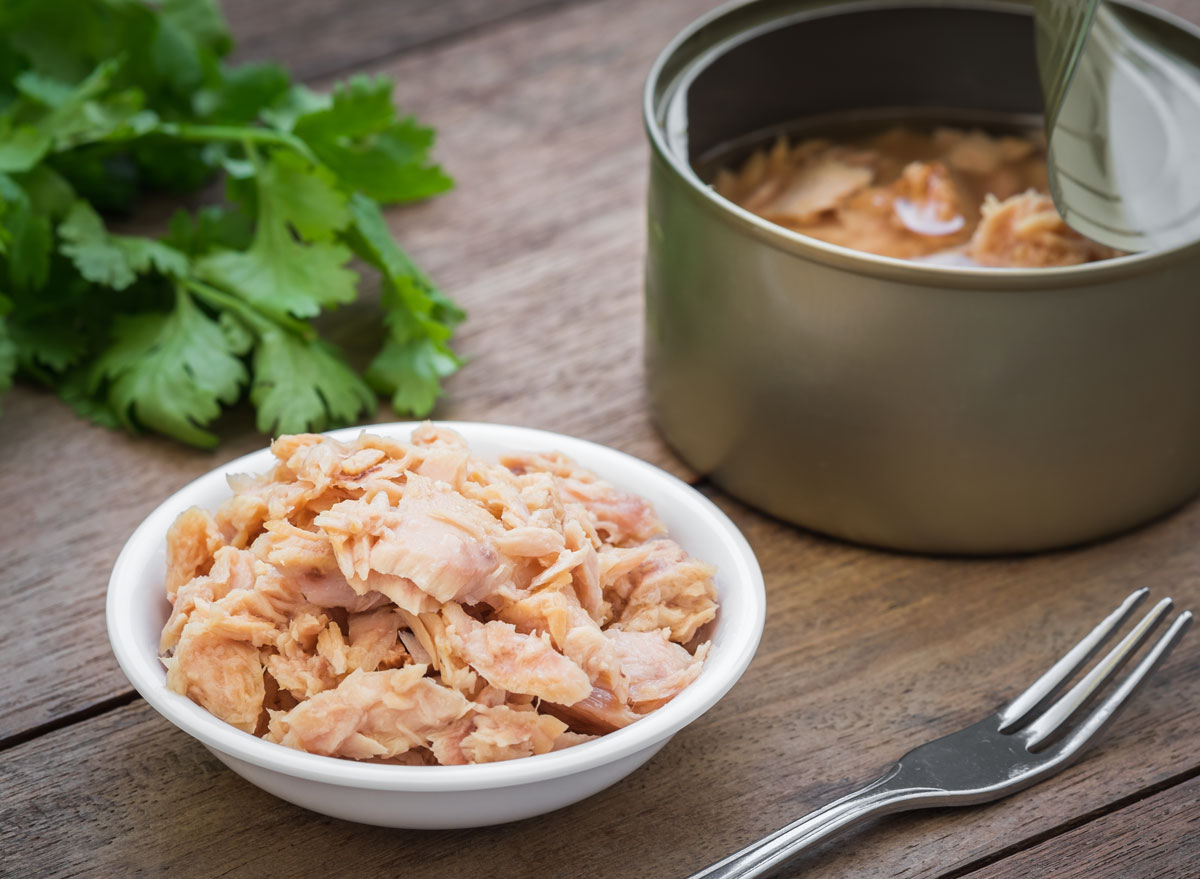
"Lunch can be a bit more hectic depending on the day, but I usually have a sandwich made up of whole grain bread with either tuna, chicken breast or some roast beef. If I do that I will also have some fruit and a side salad with kale or spinach," says Carrillo.
Edamame
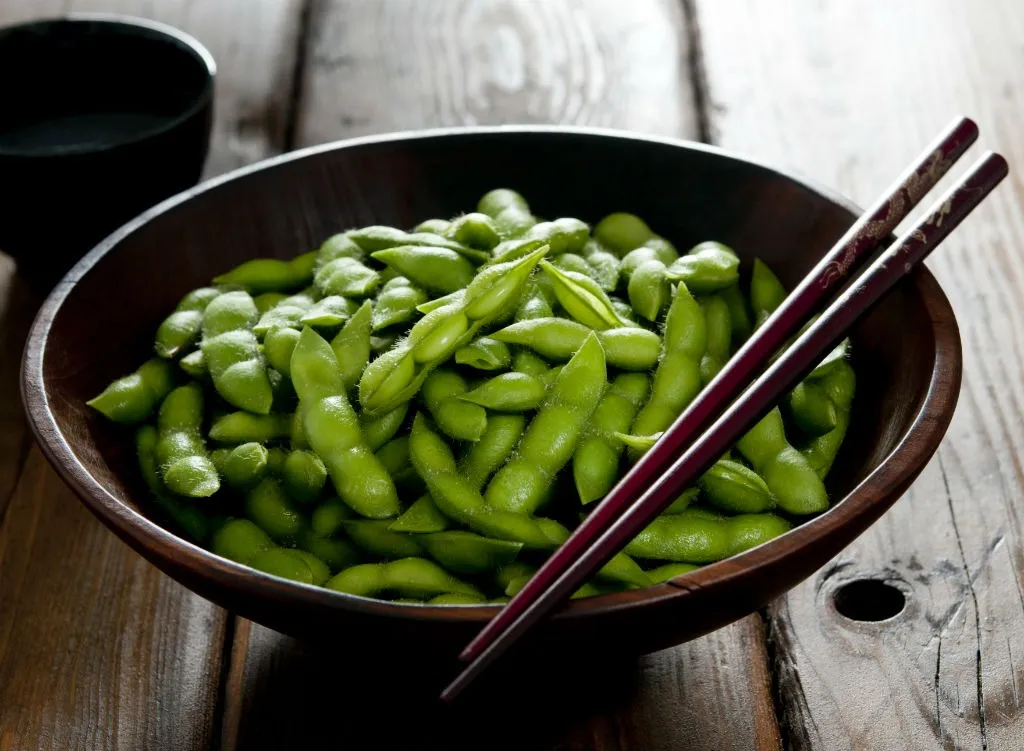
"As we age we start to lose muscle mass, but we're still able to build and maintain. I do strength exercises and cardio exercises, but they won't be as beneficial without sufficient protein," says Carrillo. She will sometimes supplement her meals with edamame for an added protein boost.
